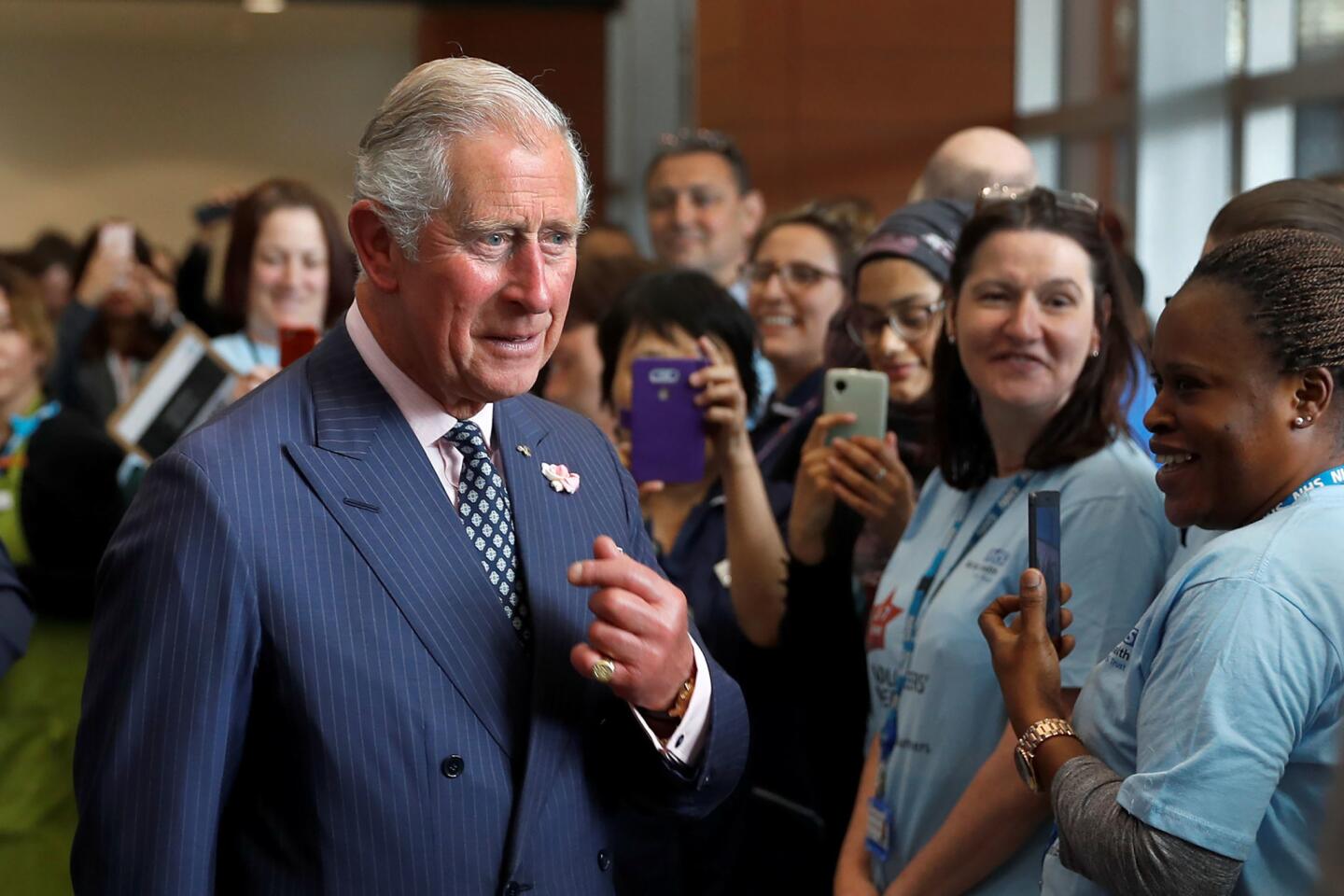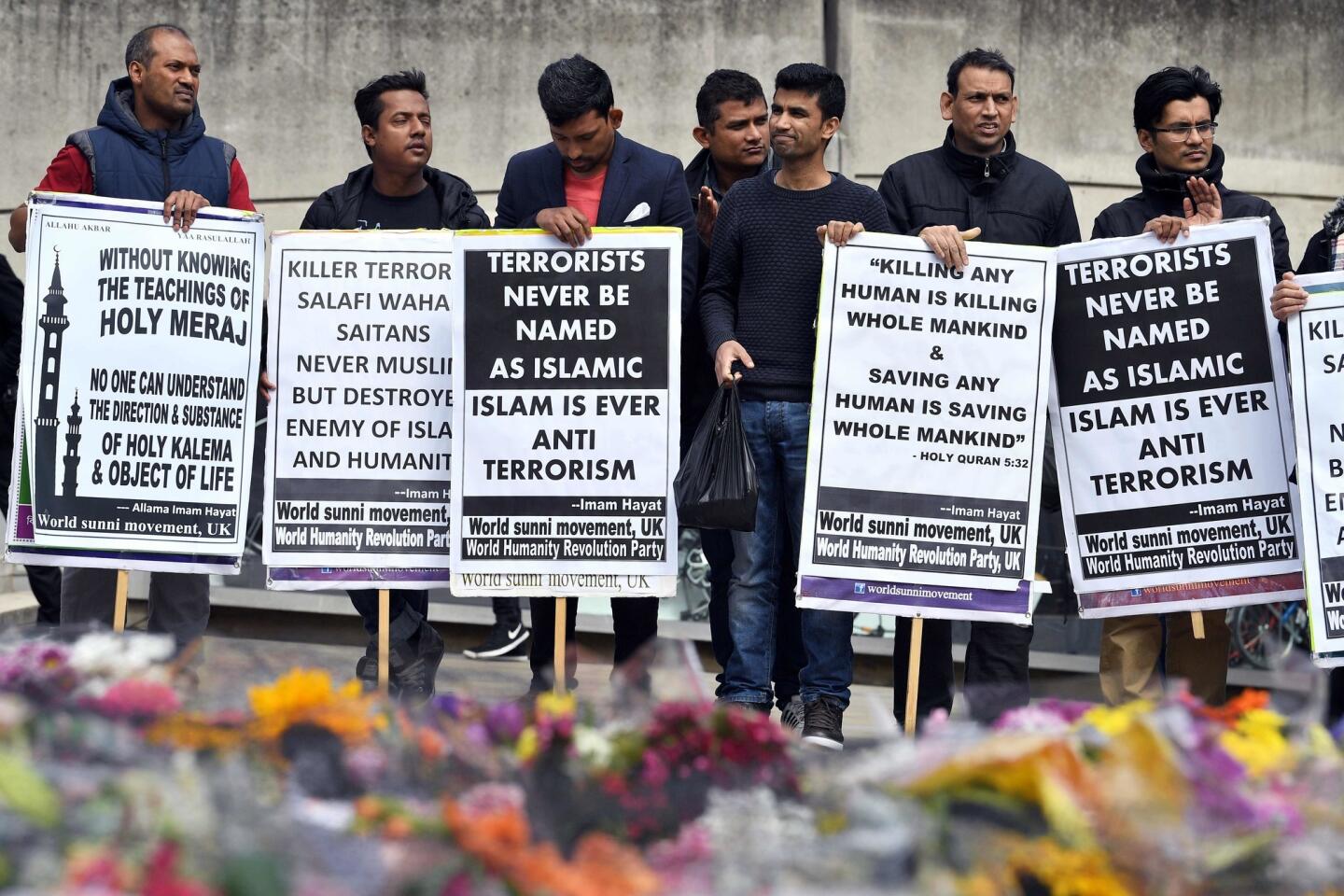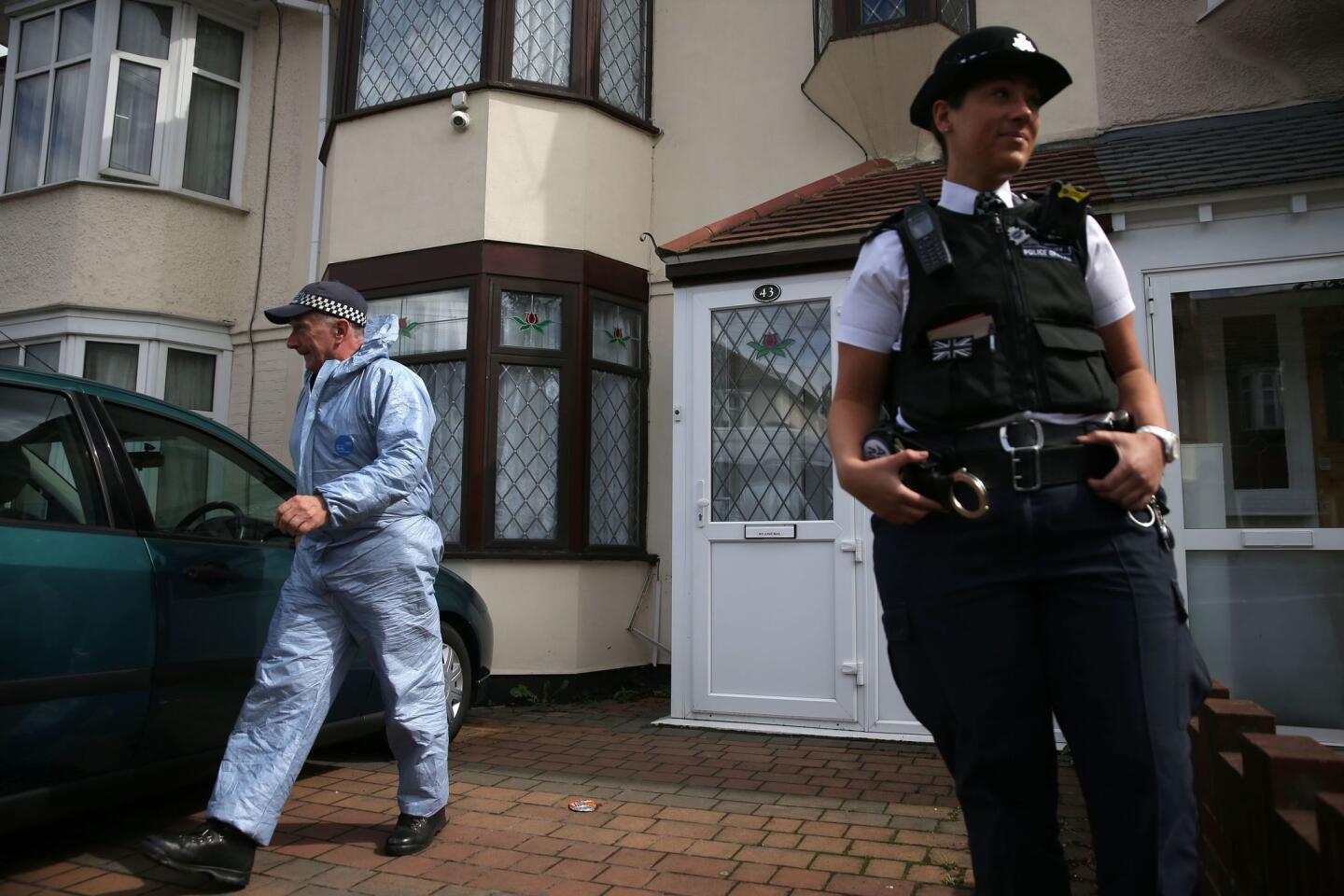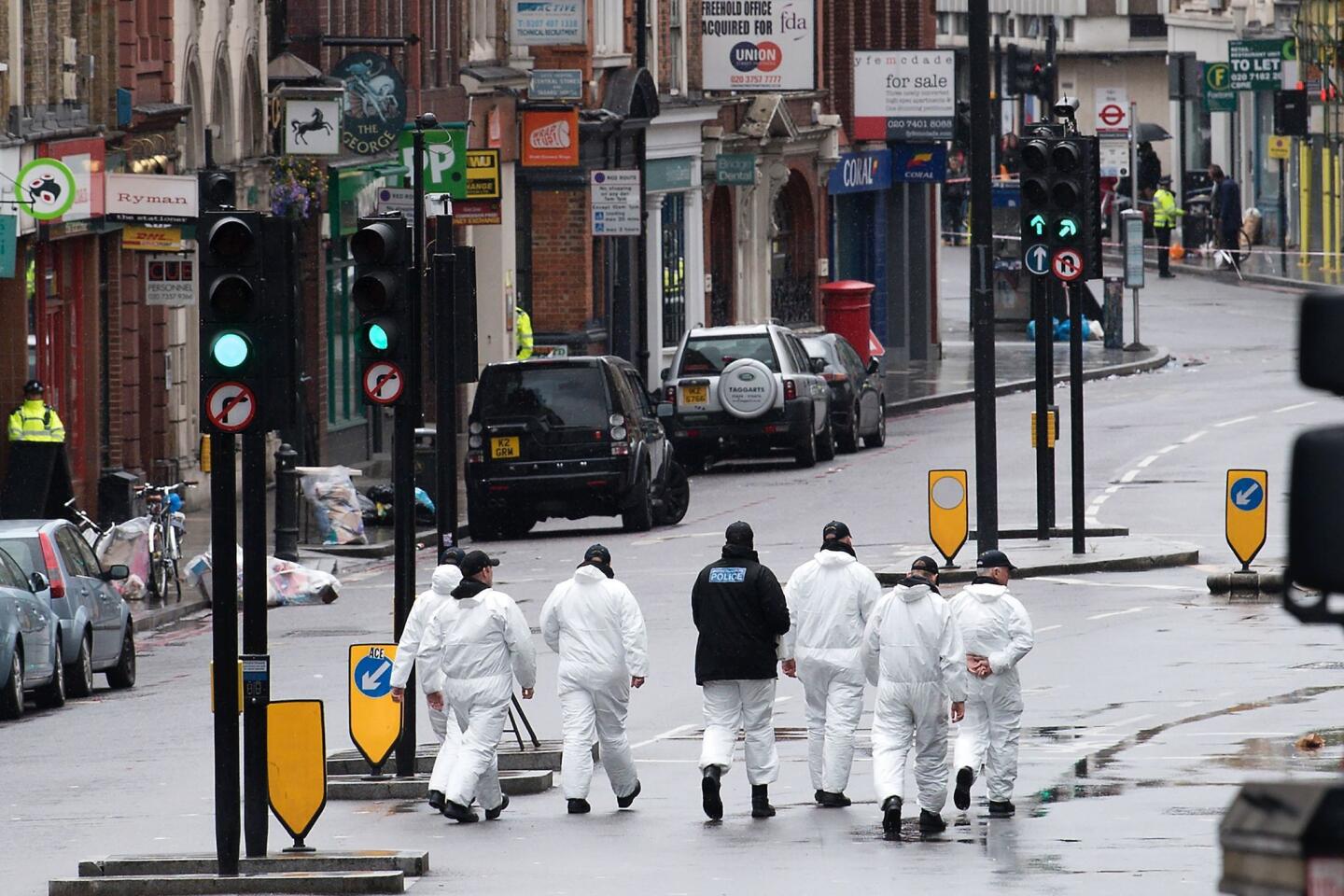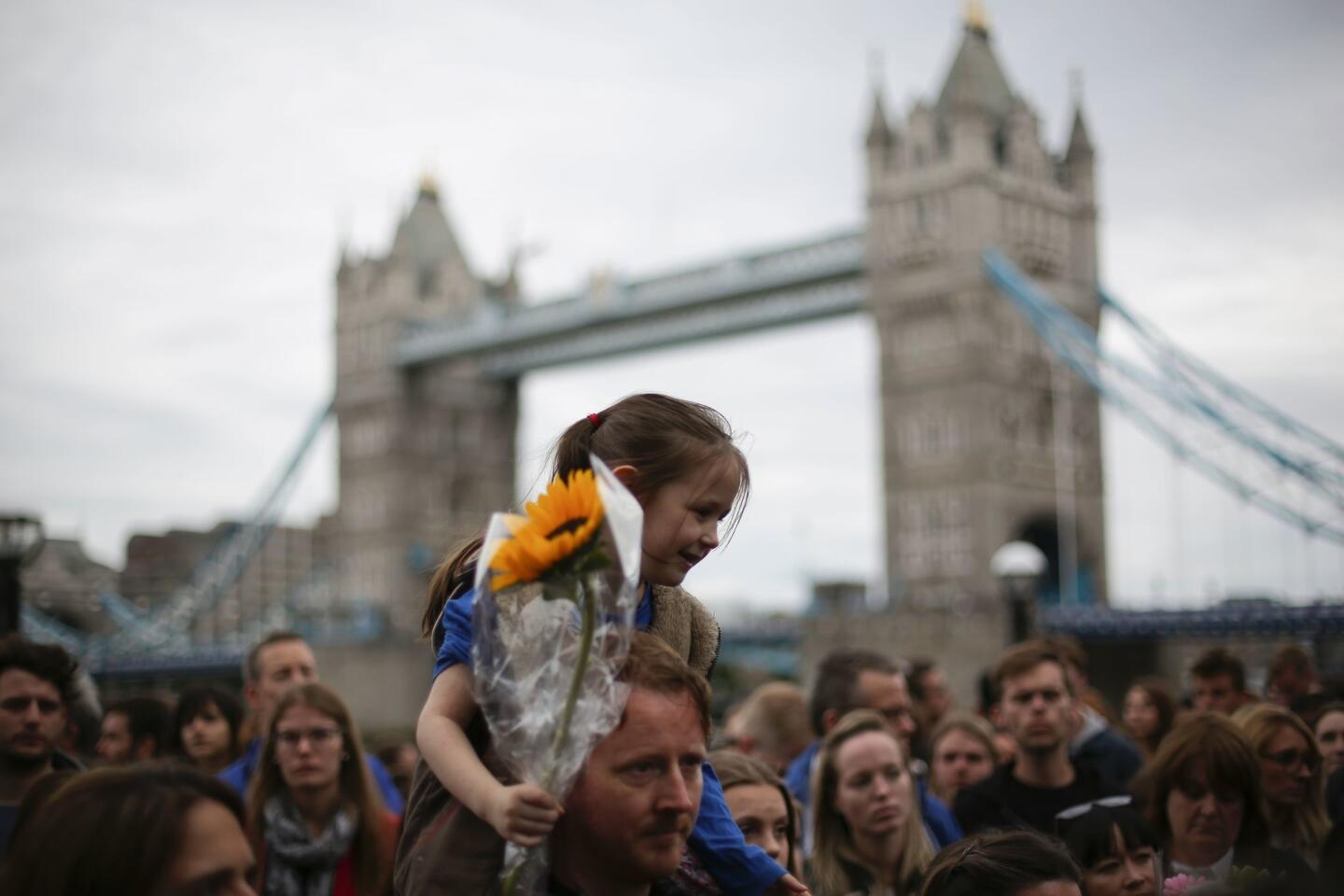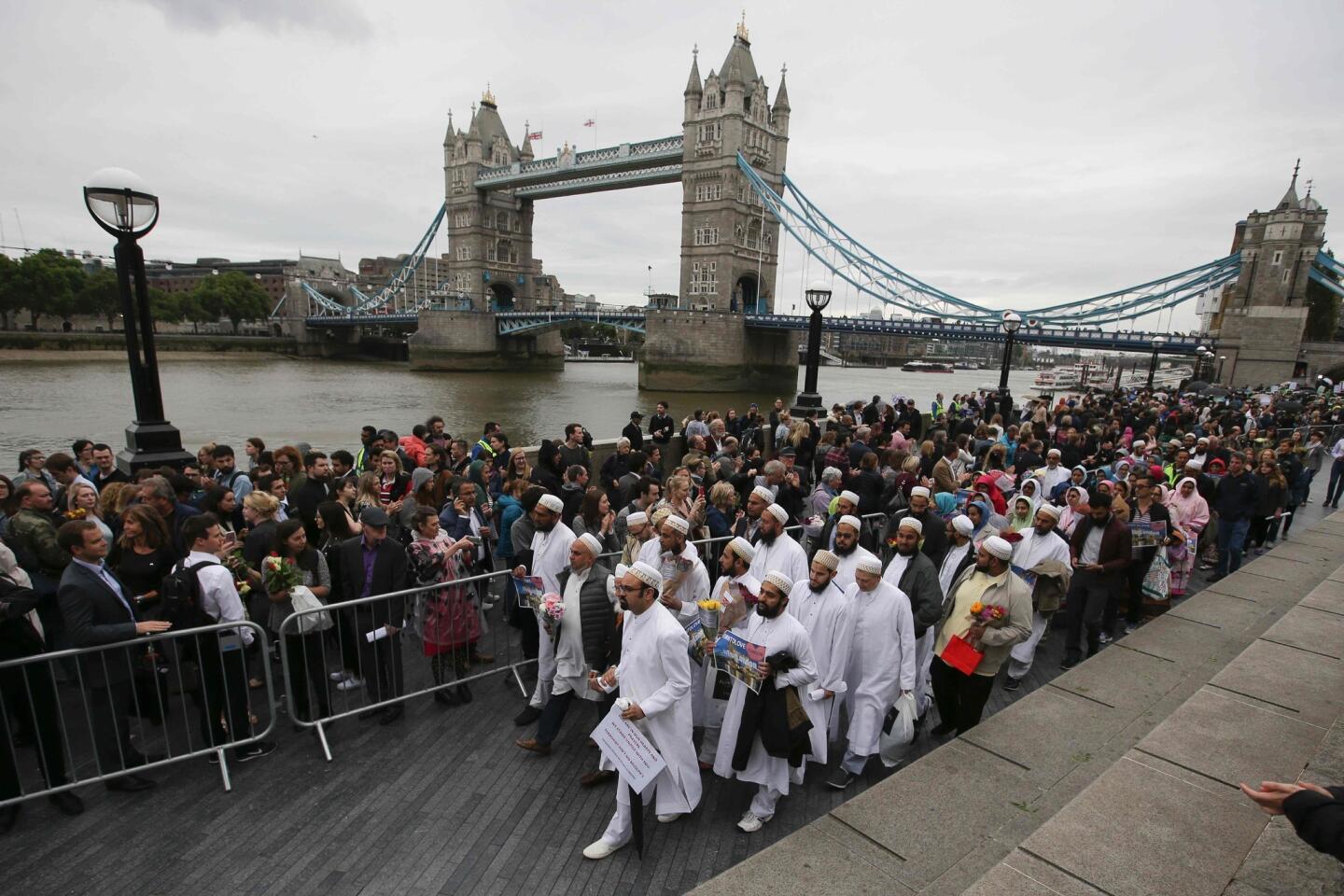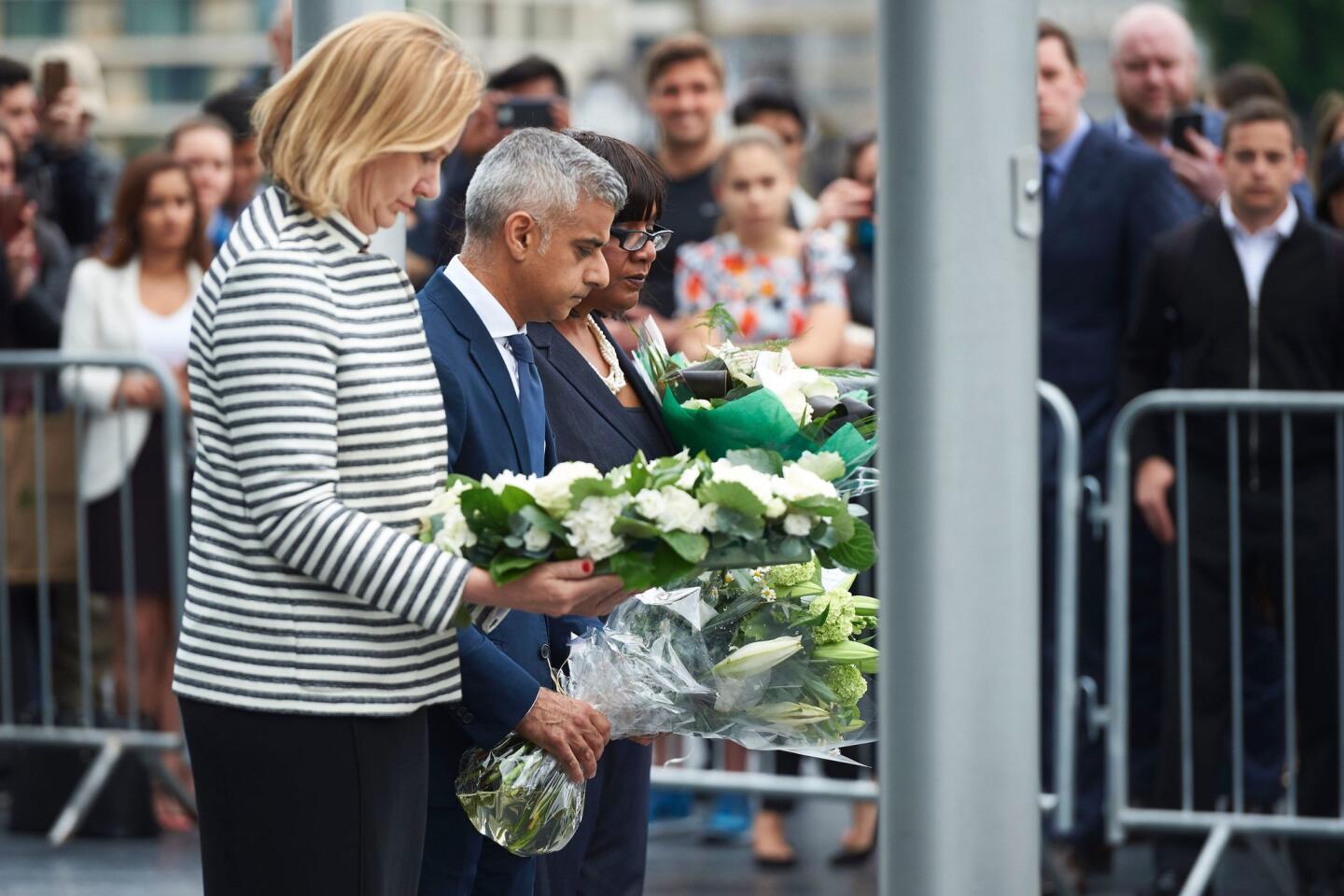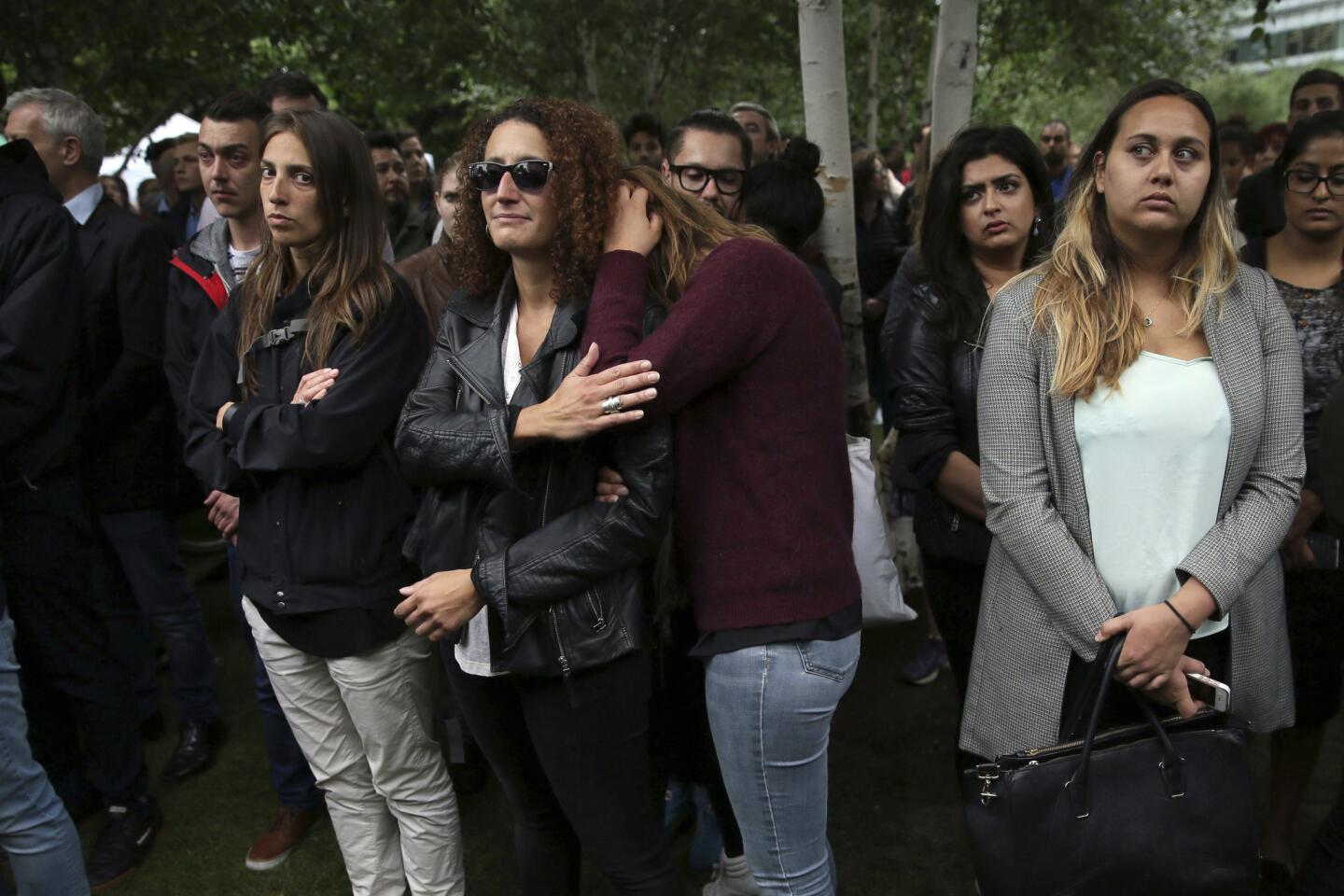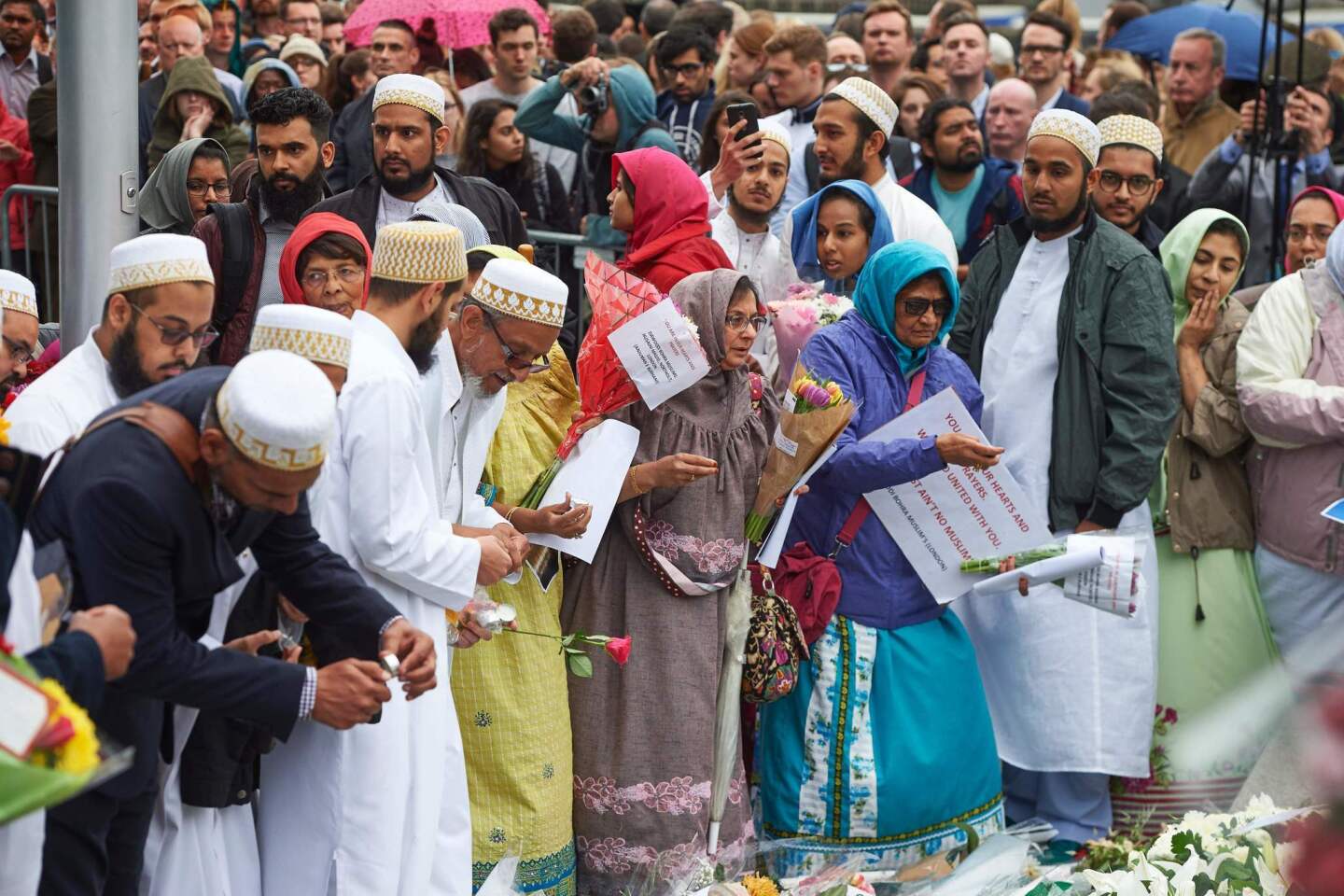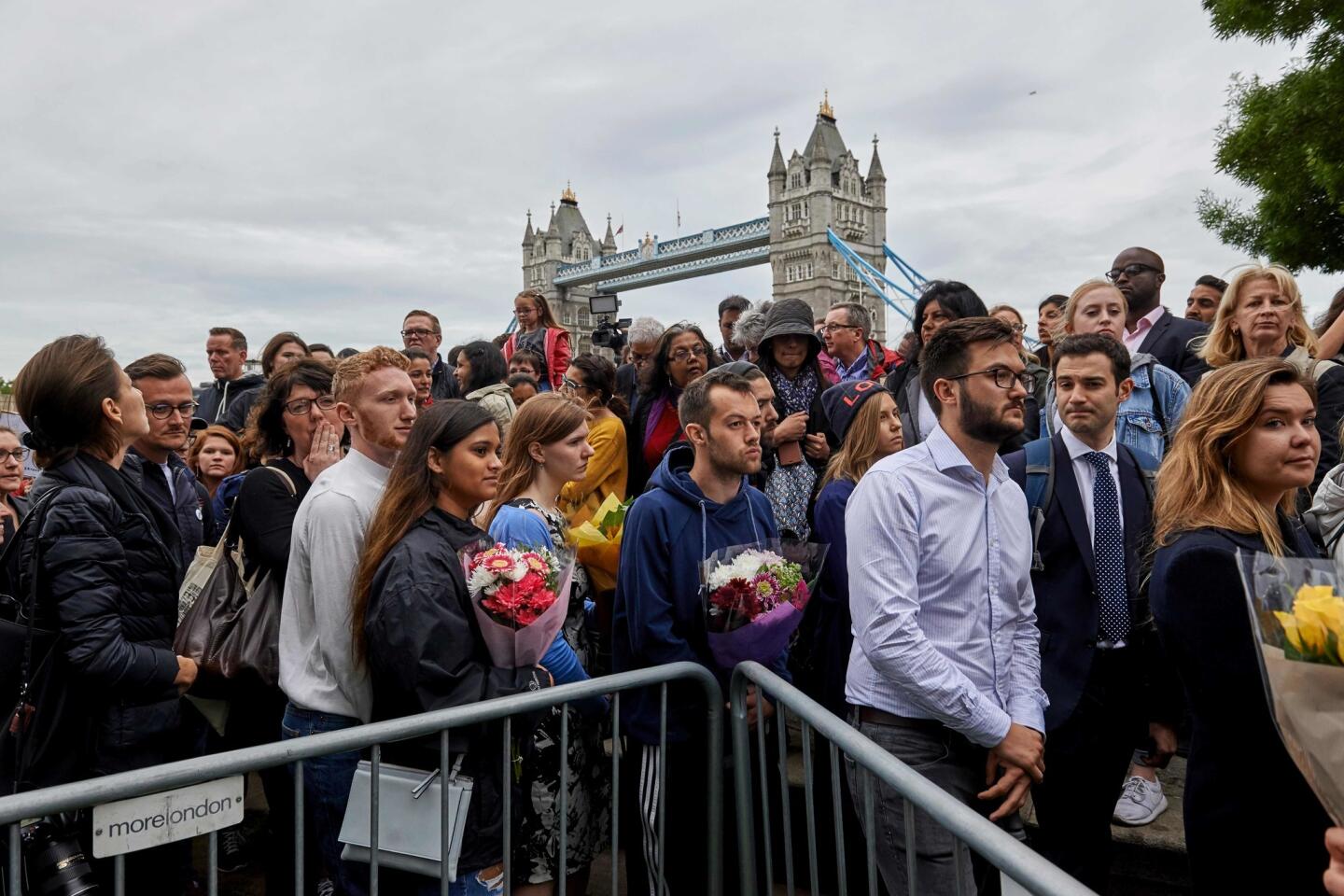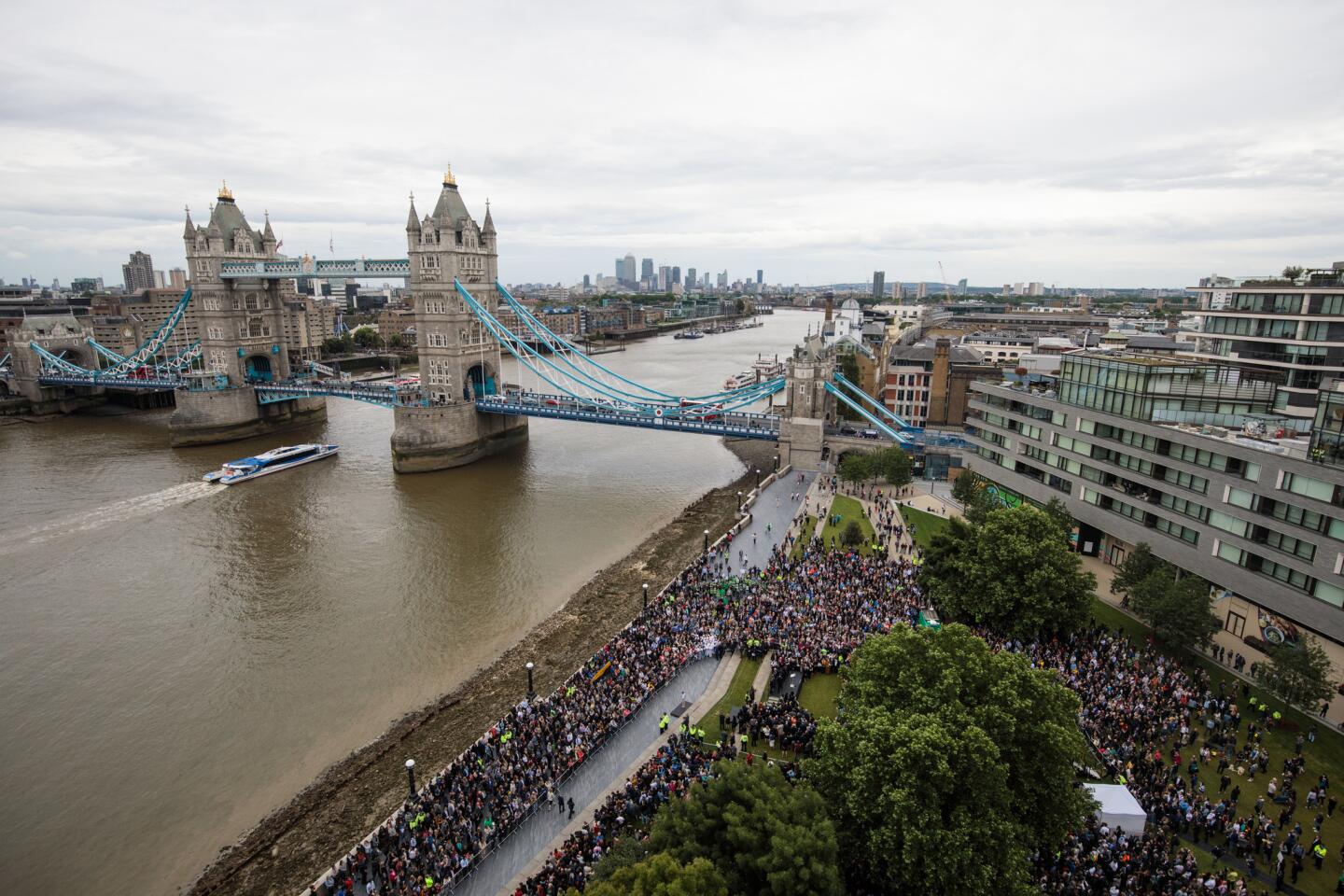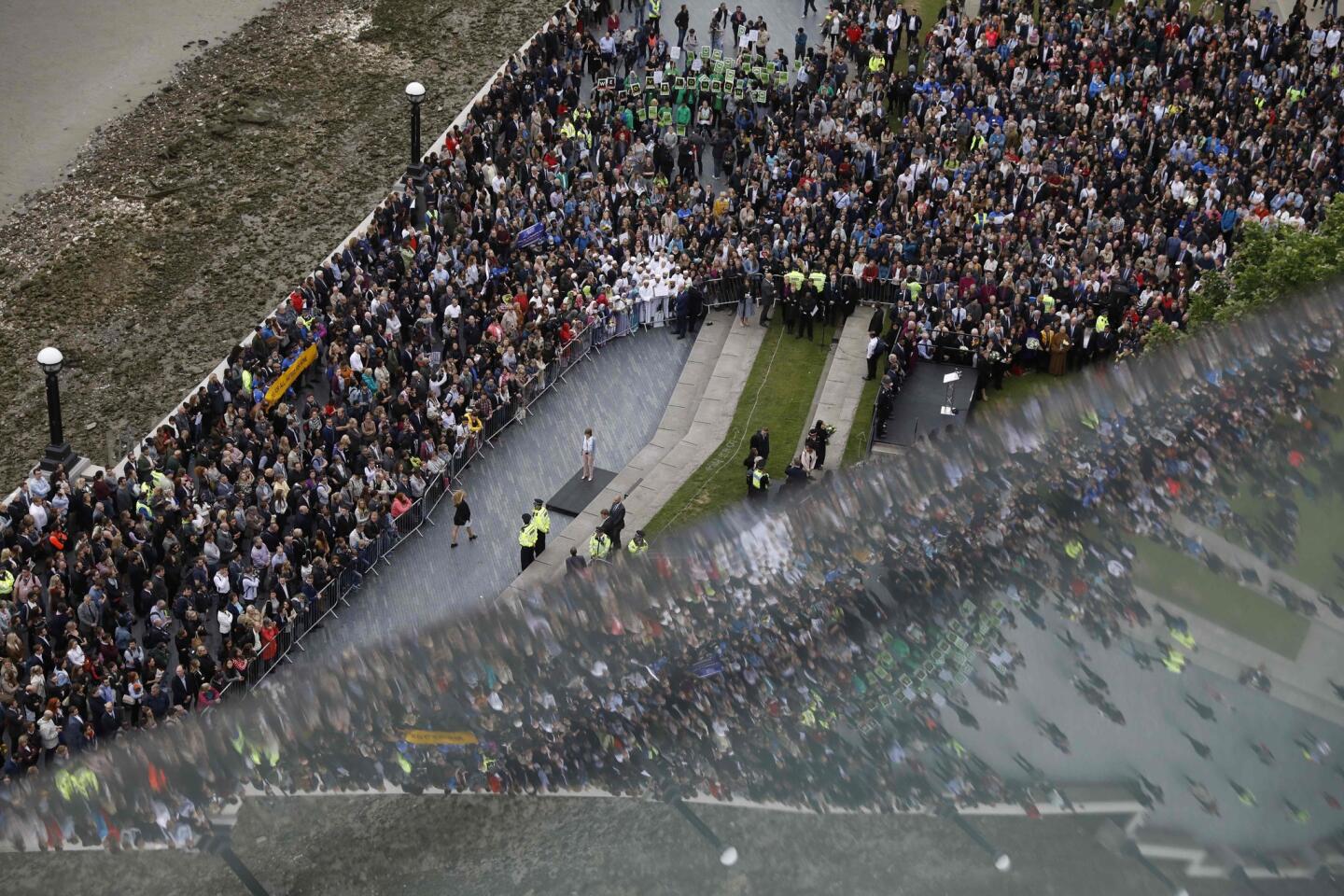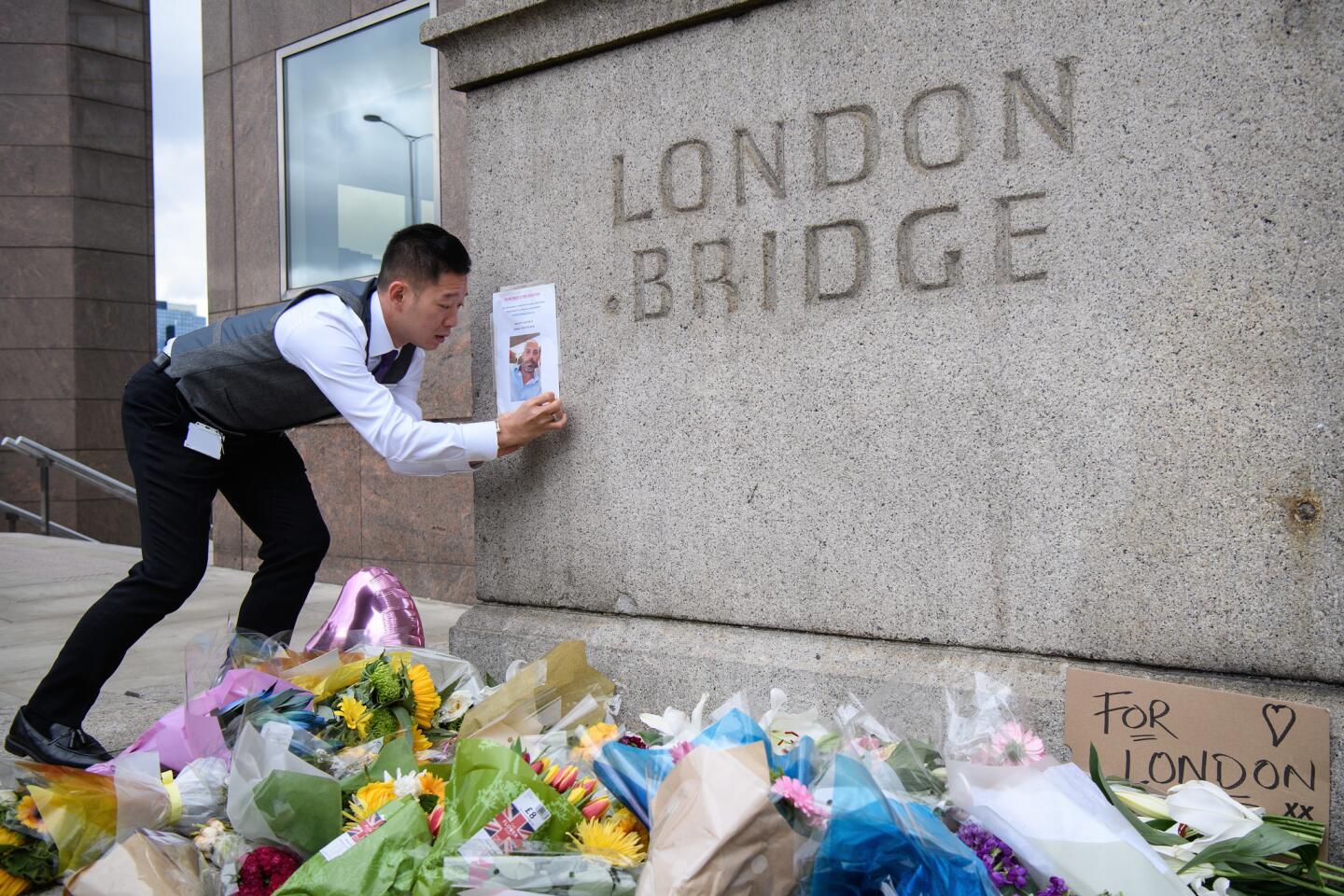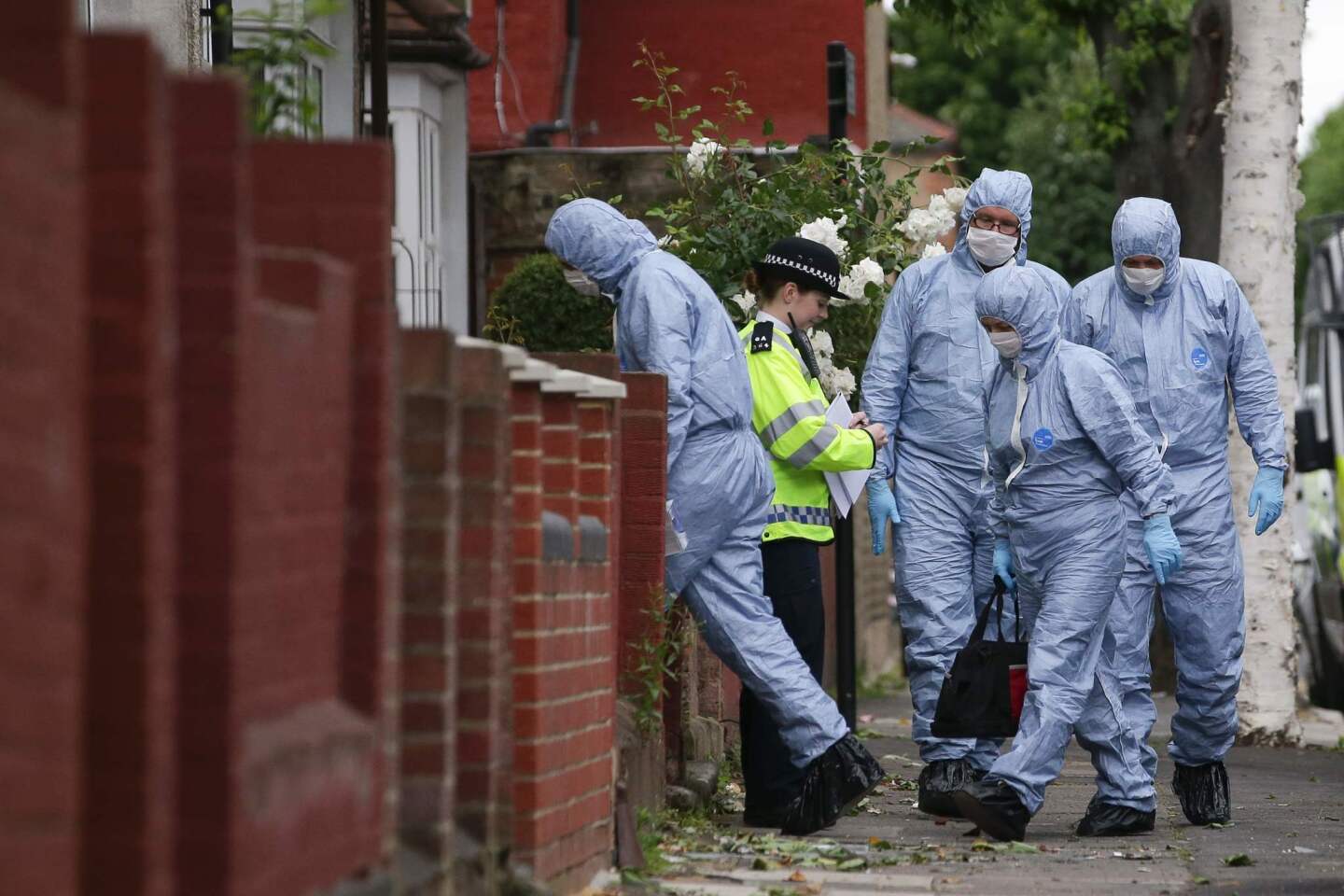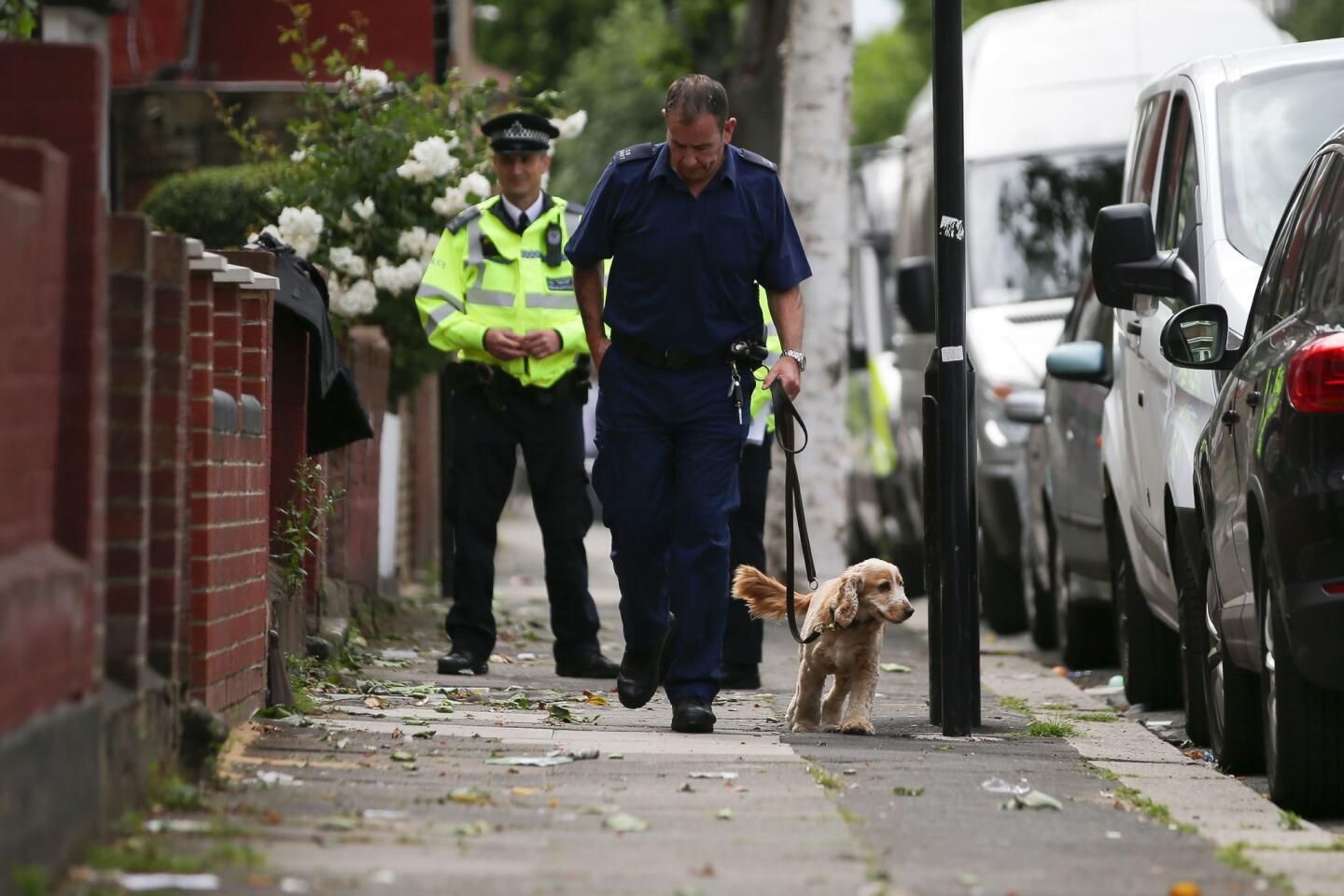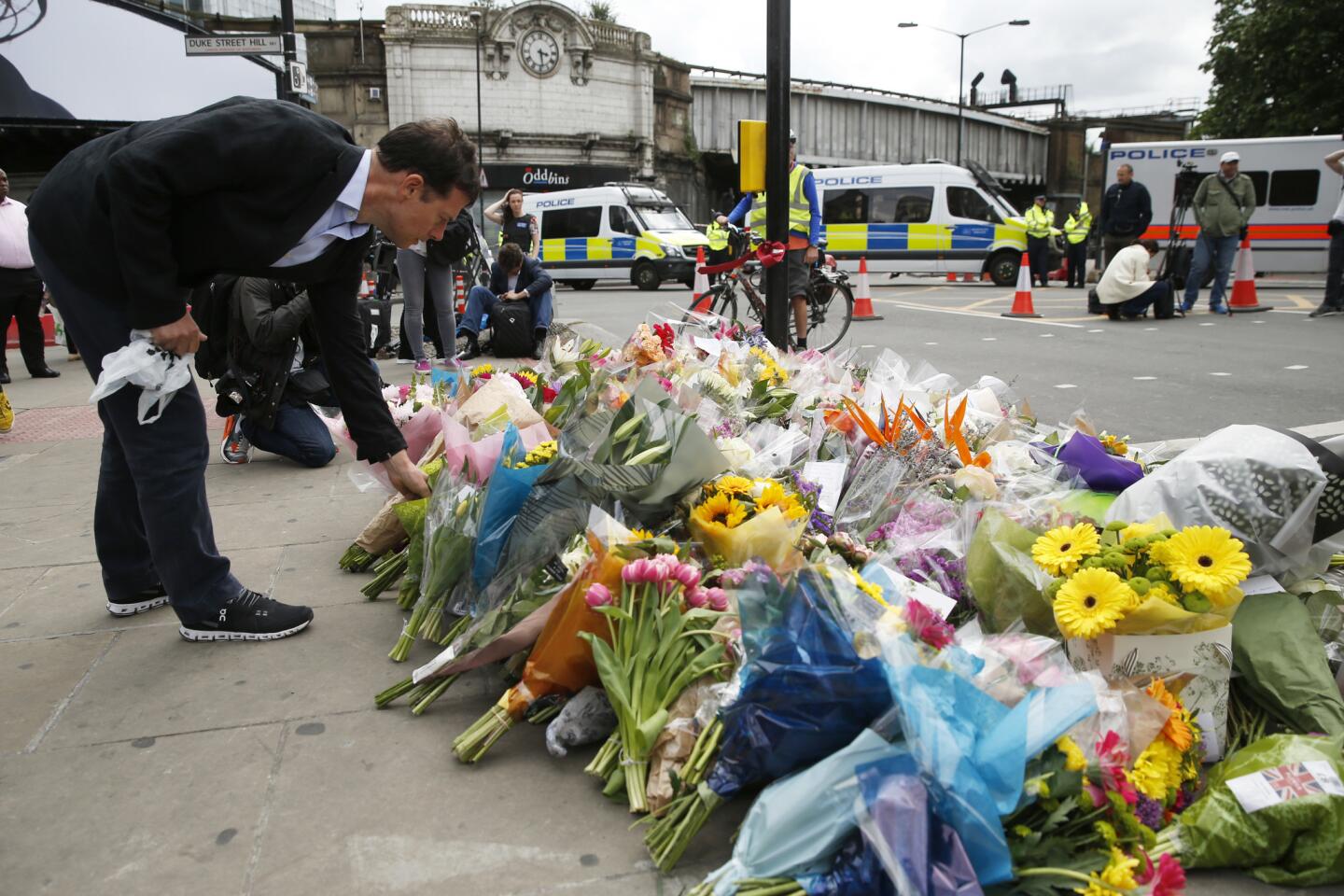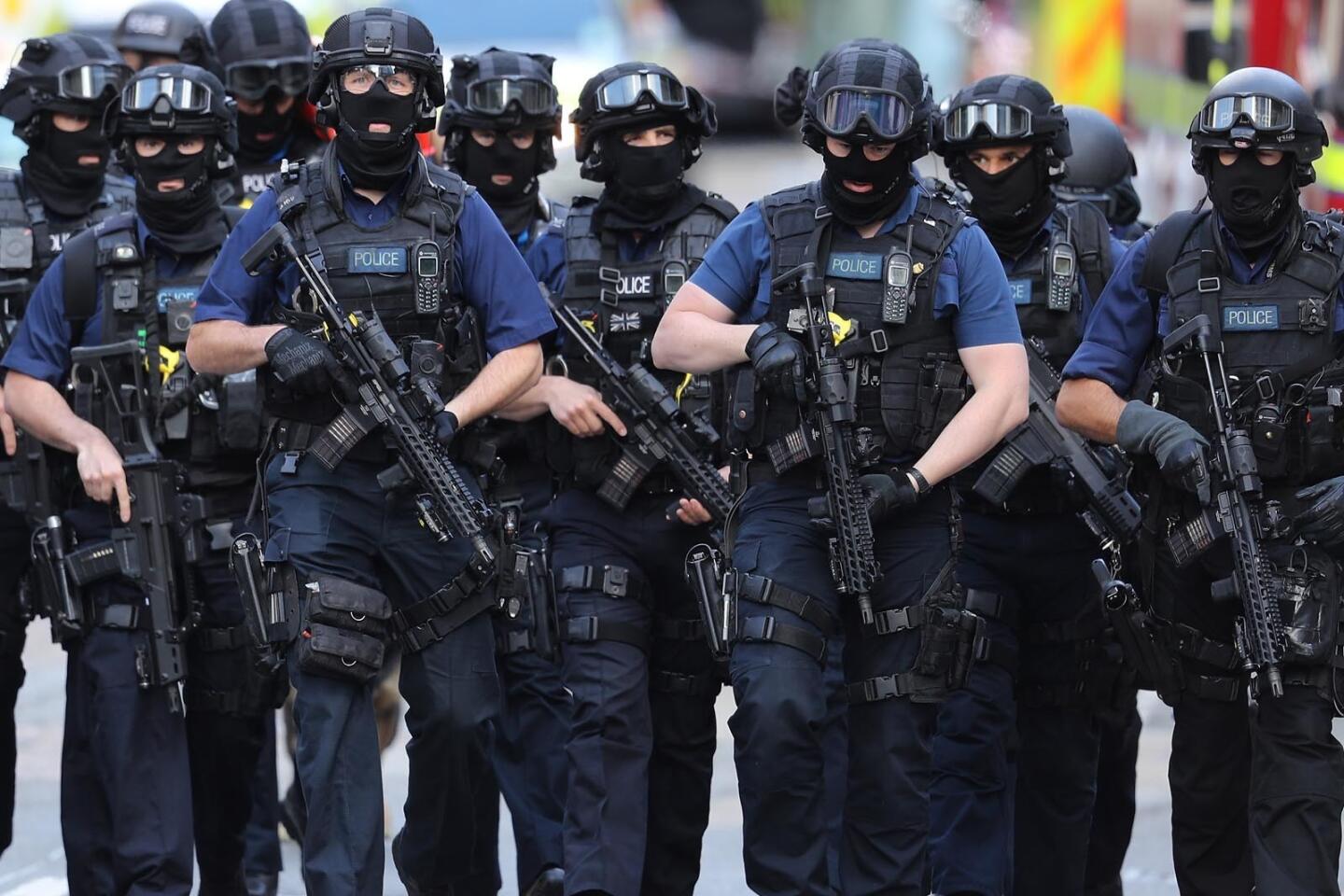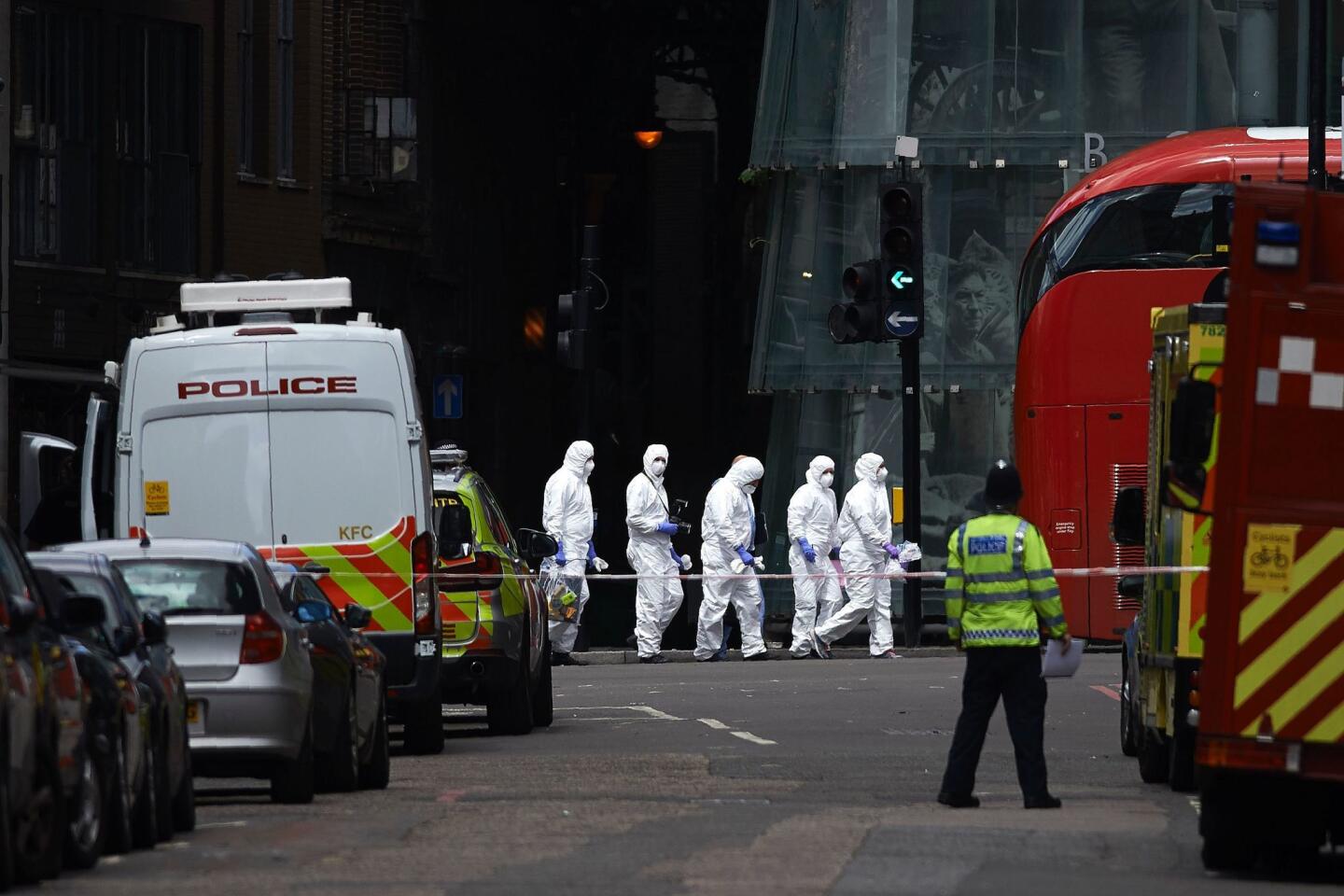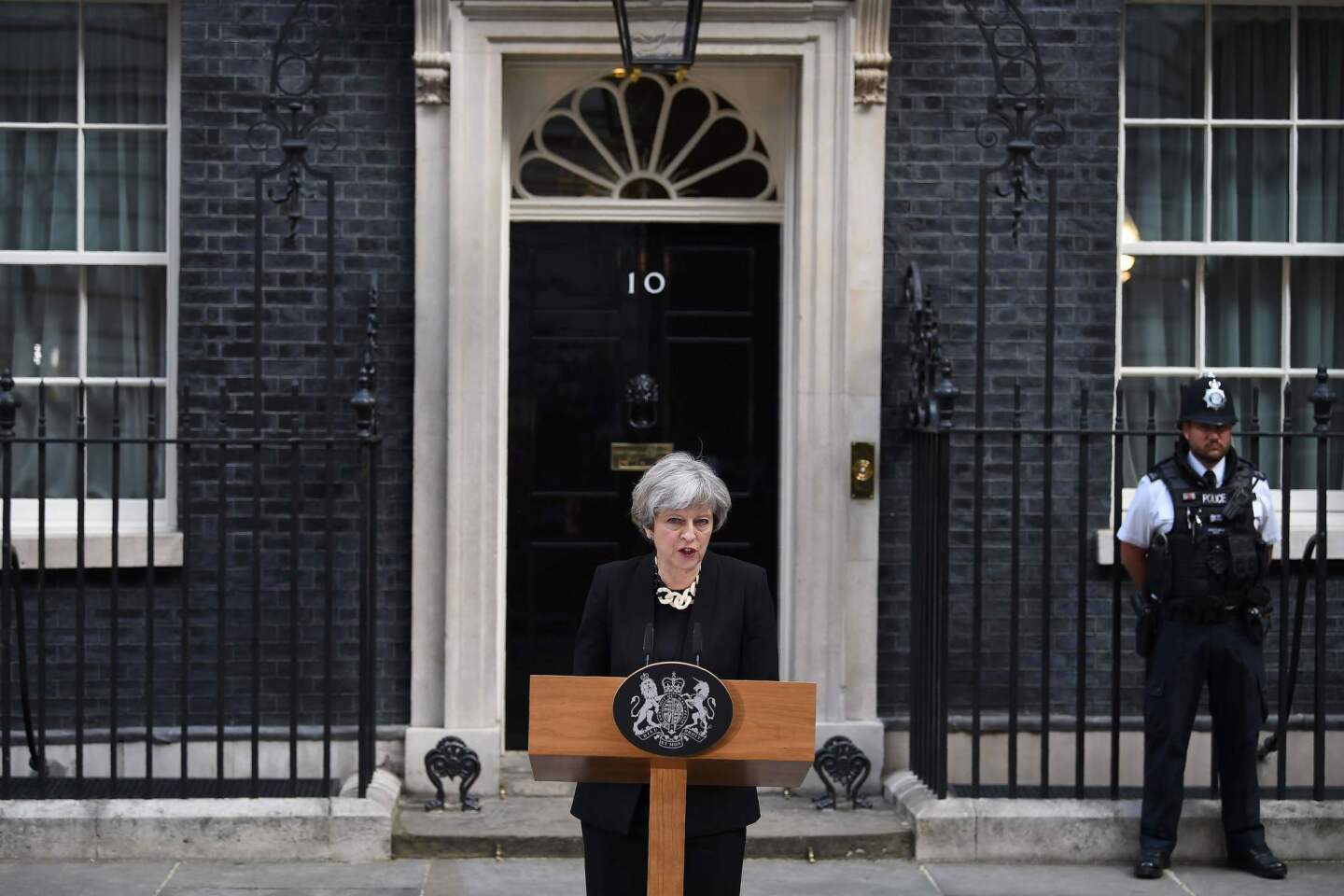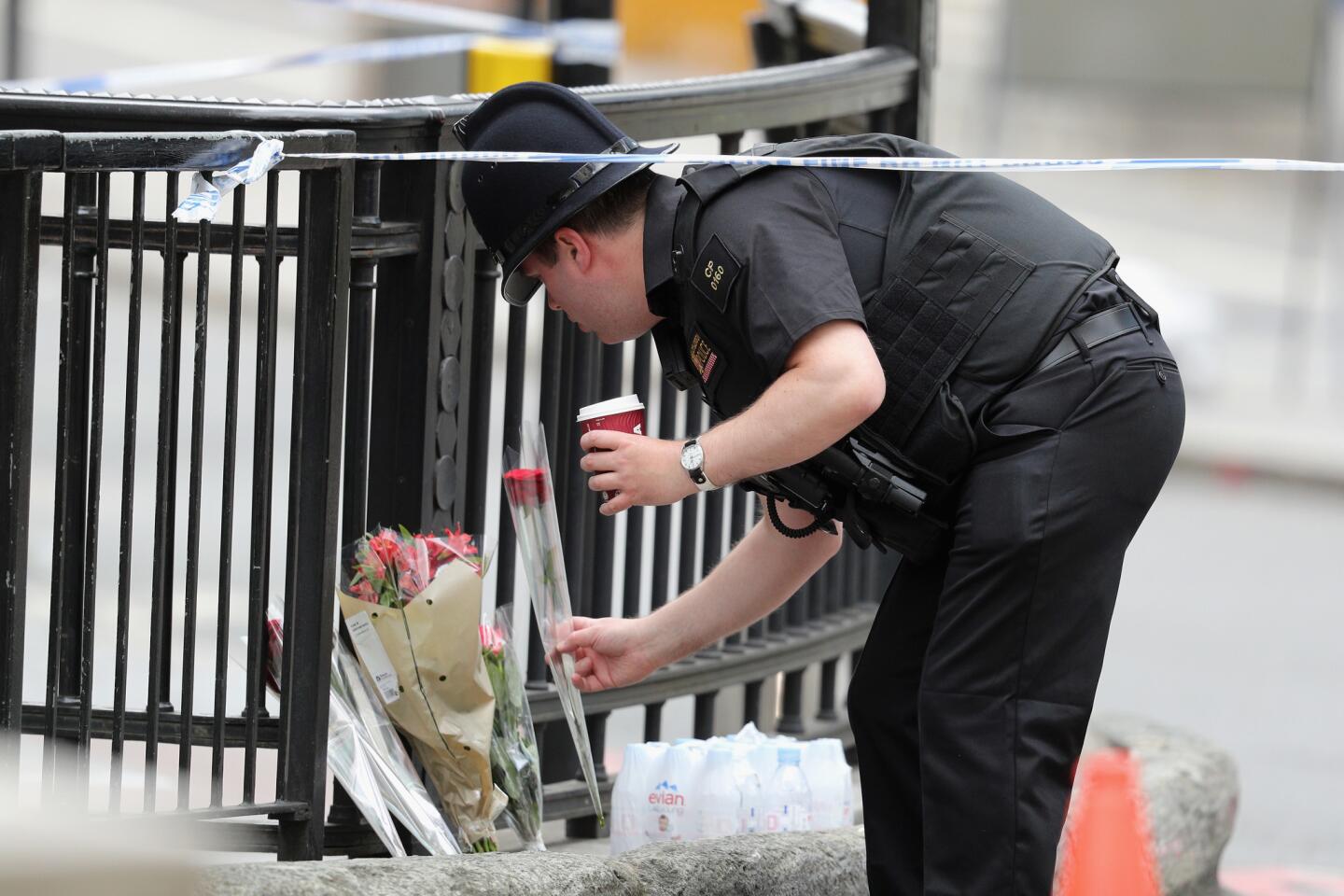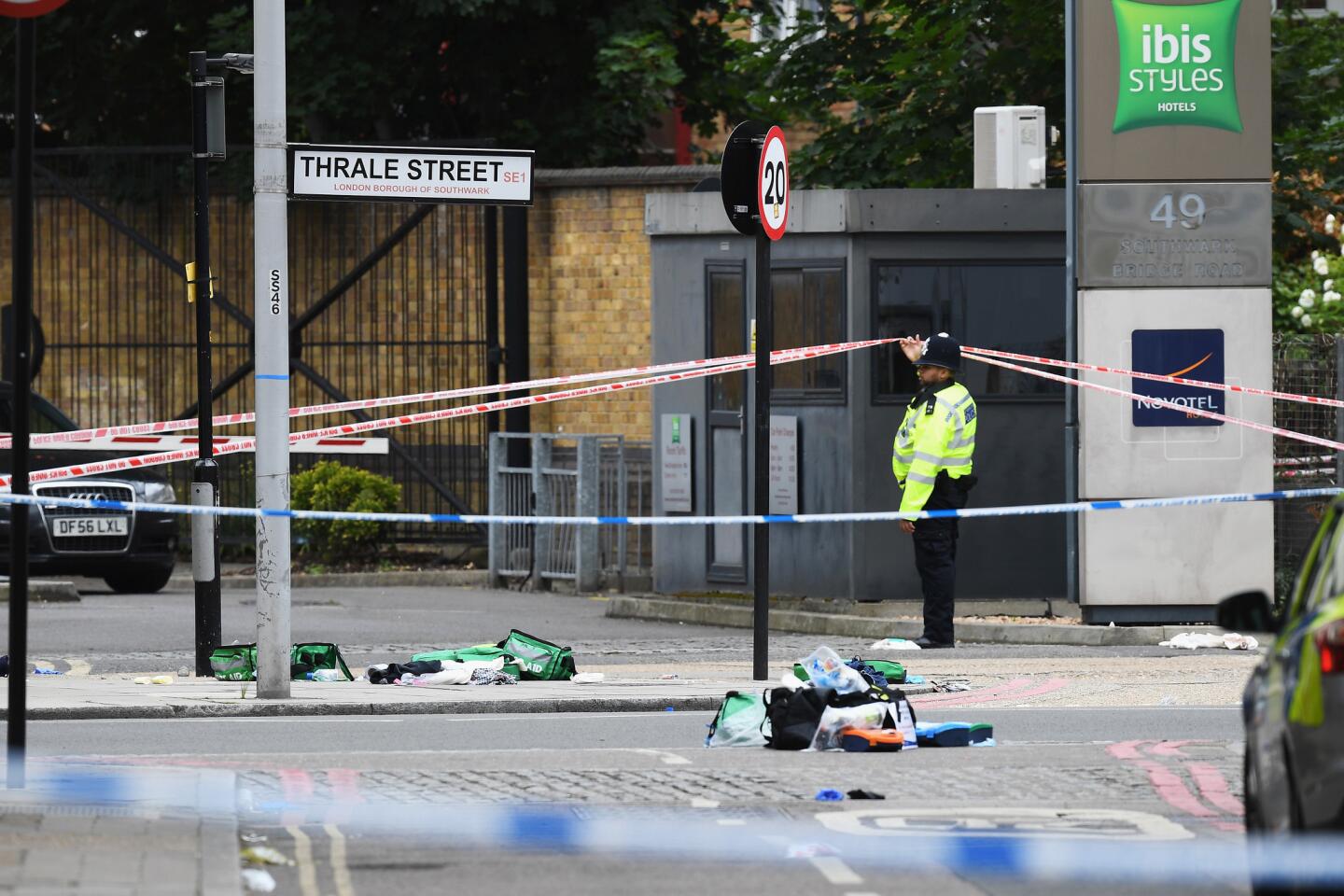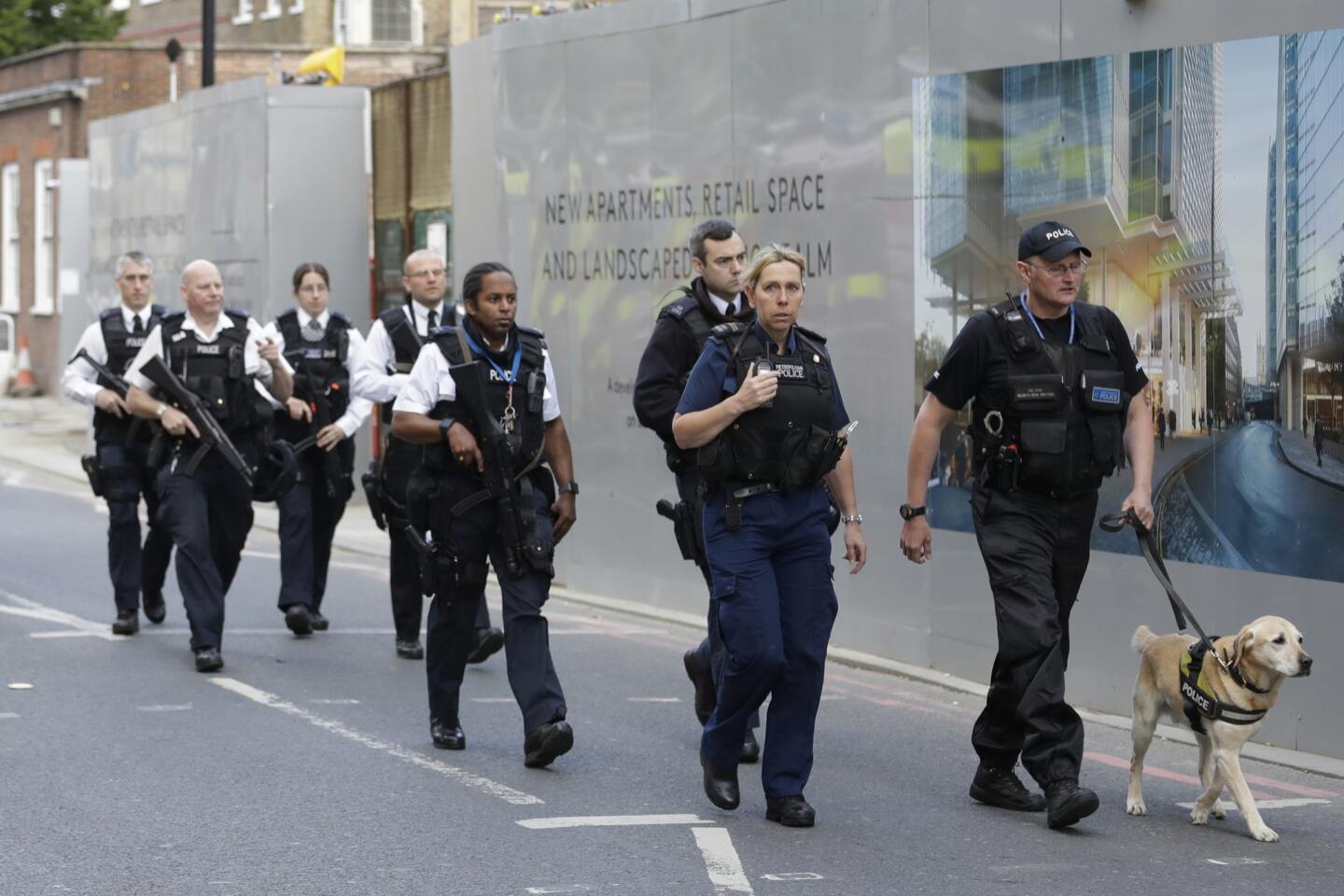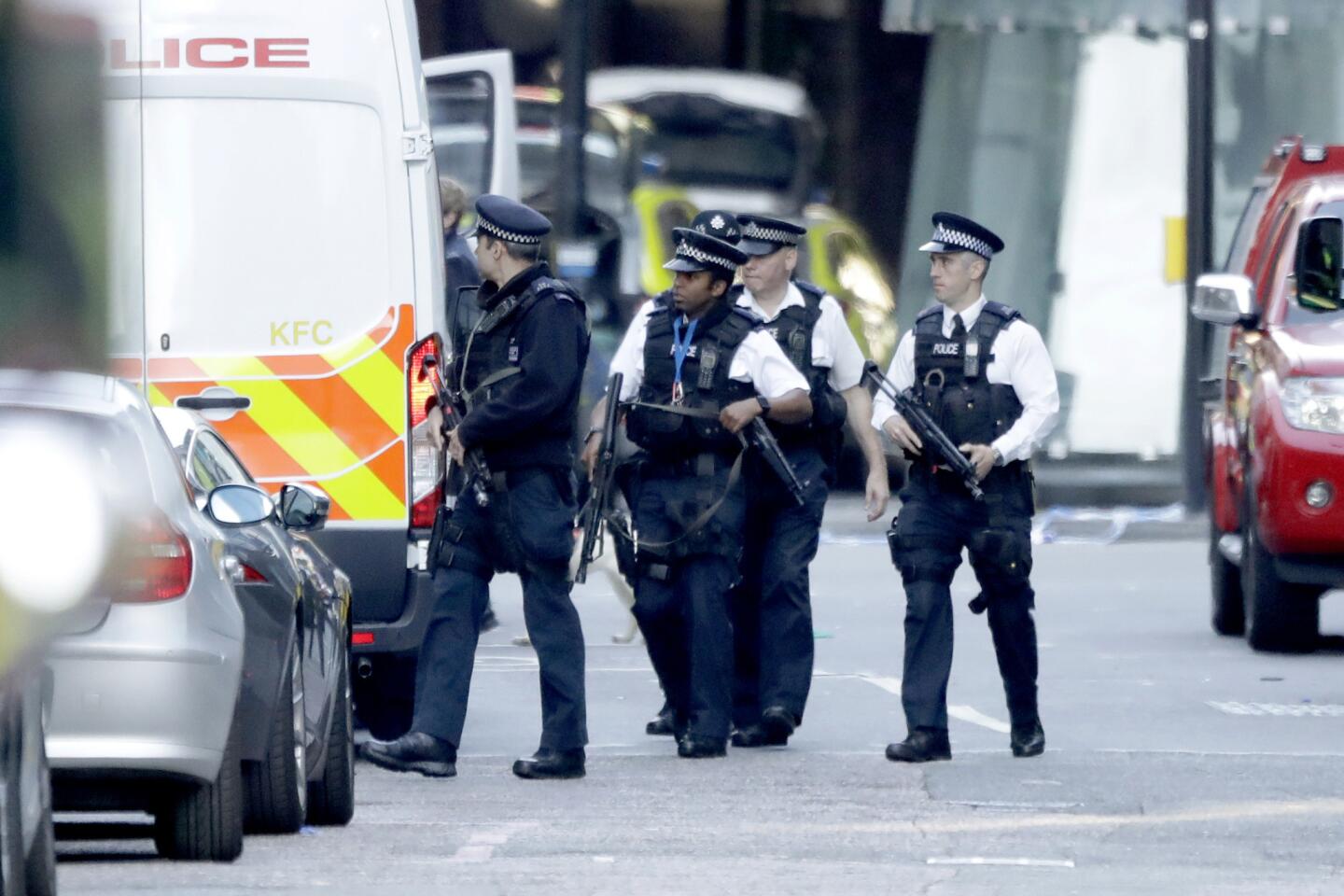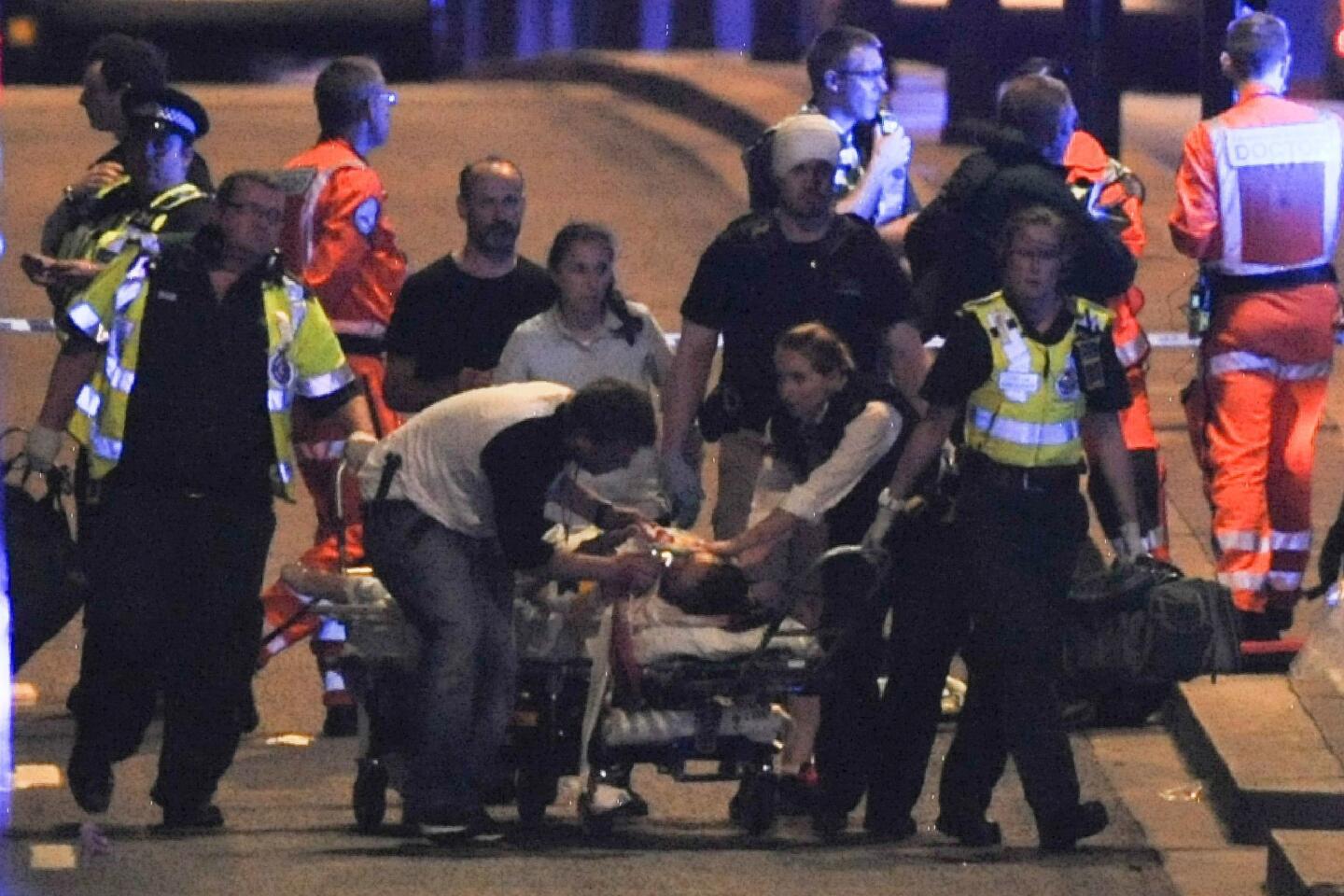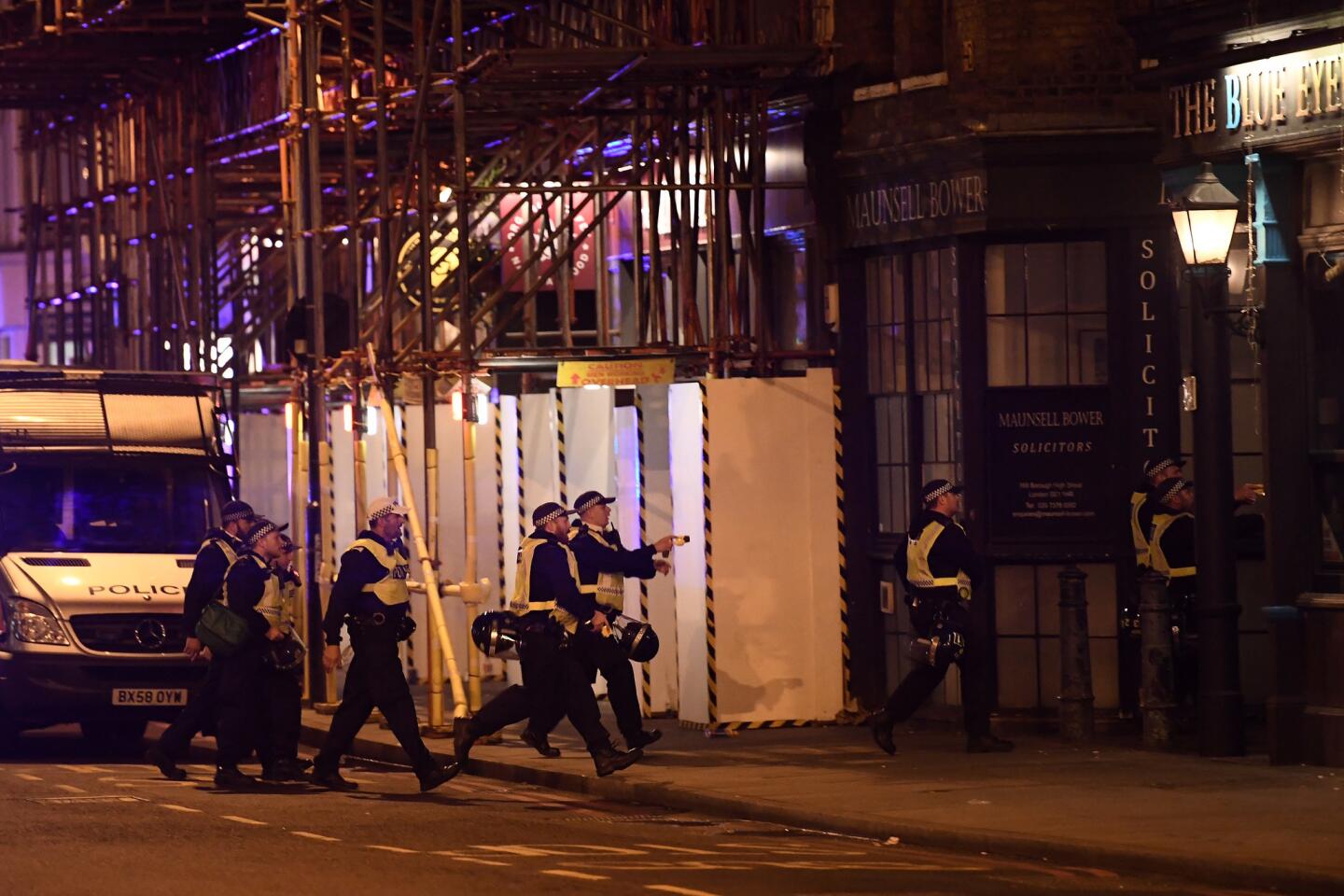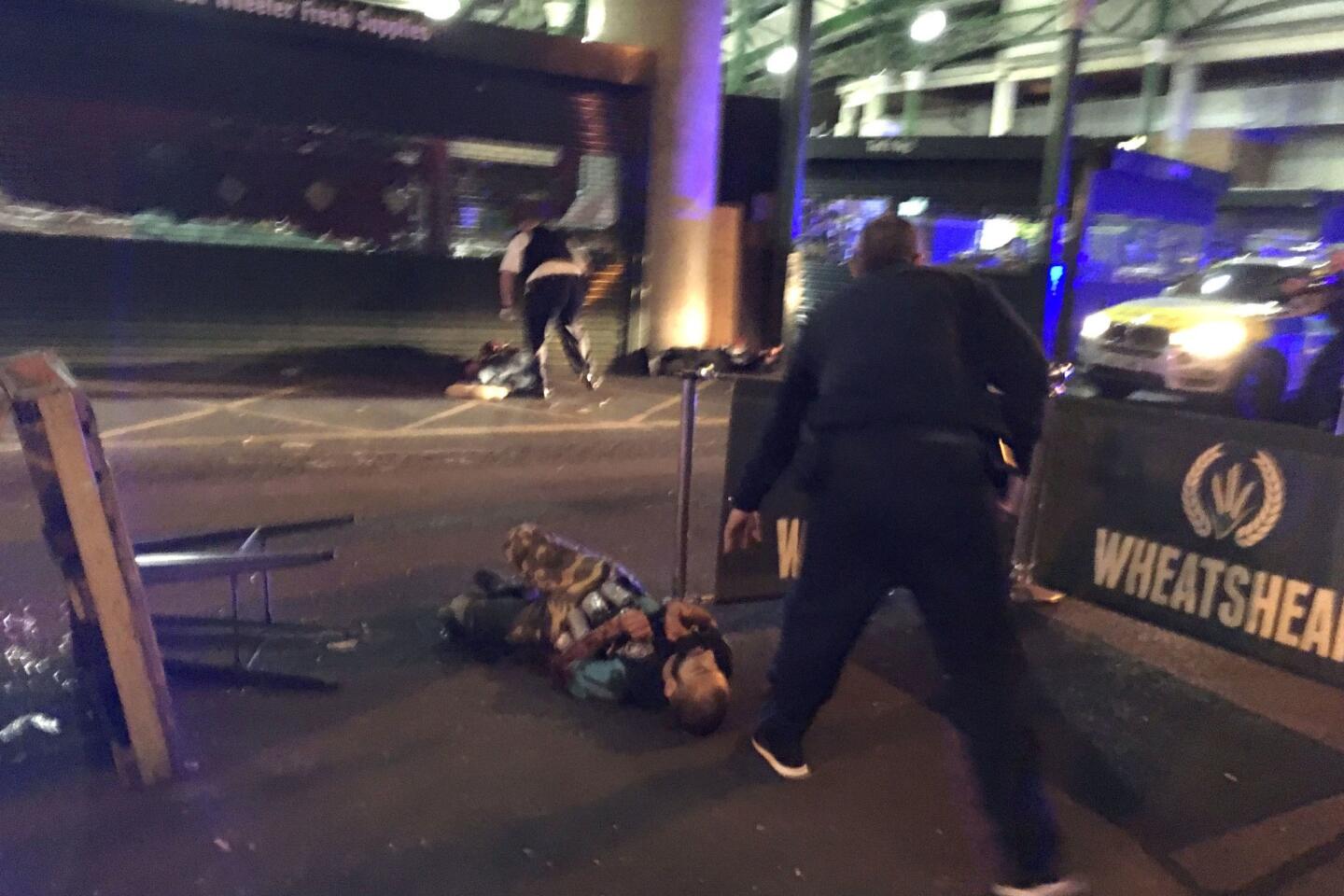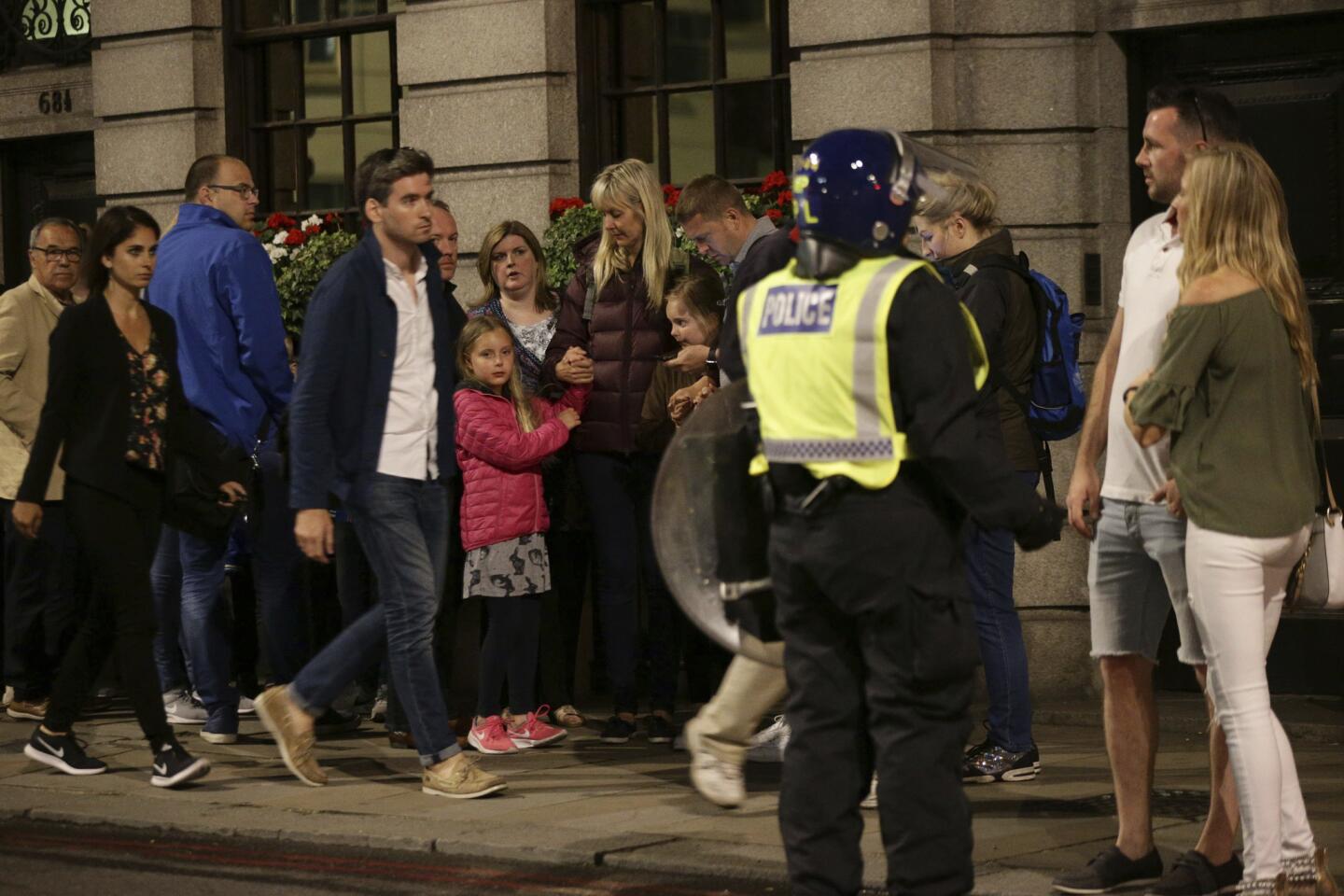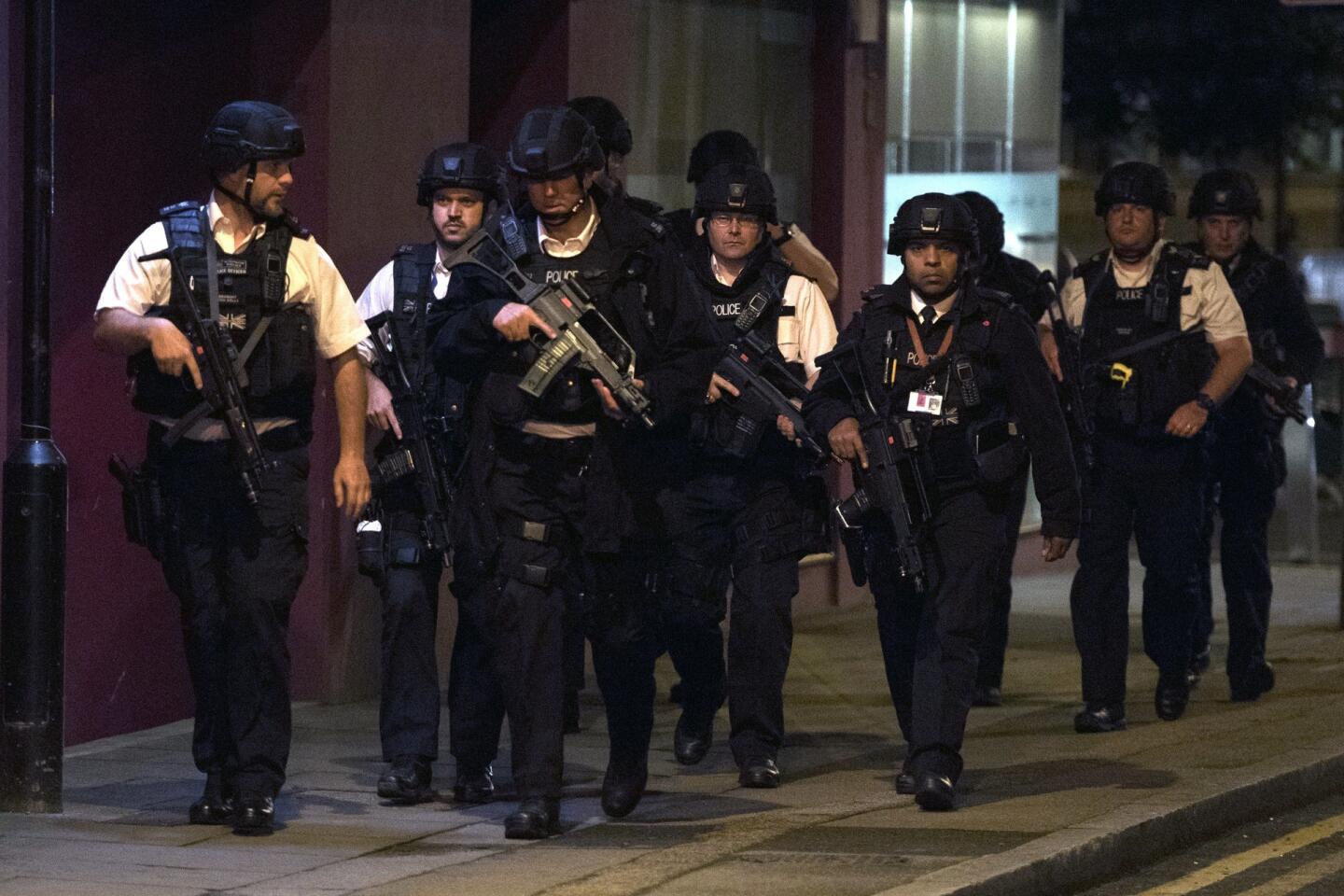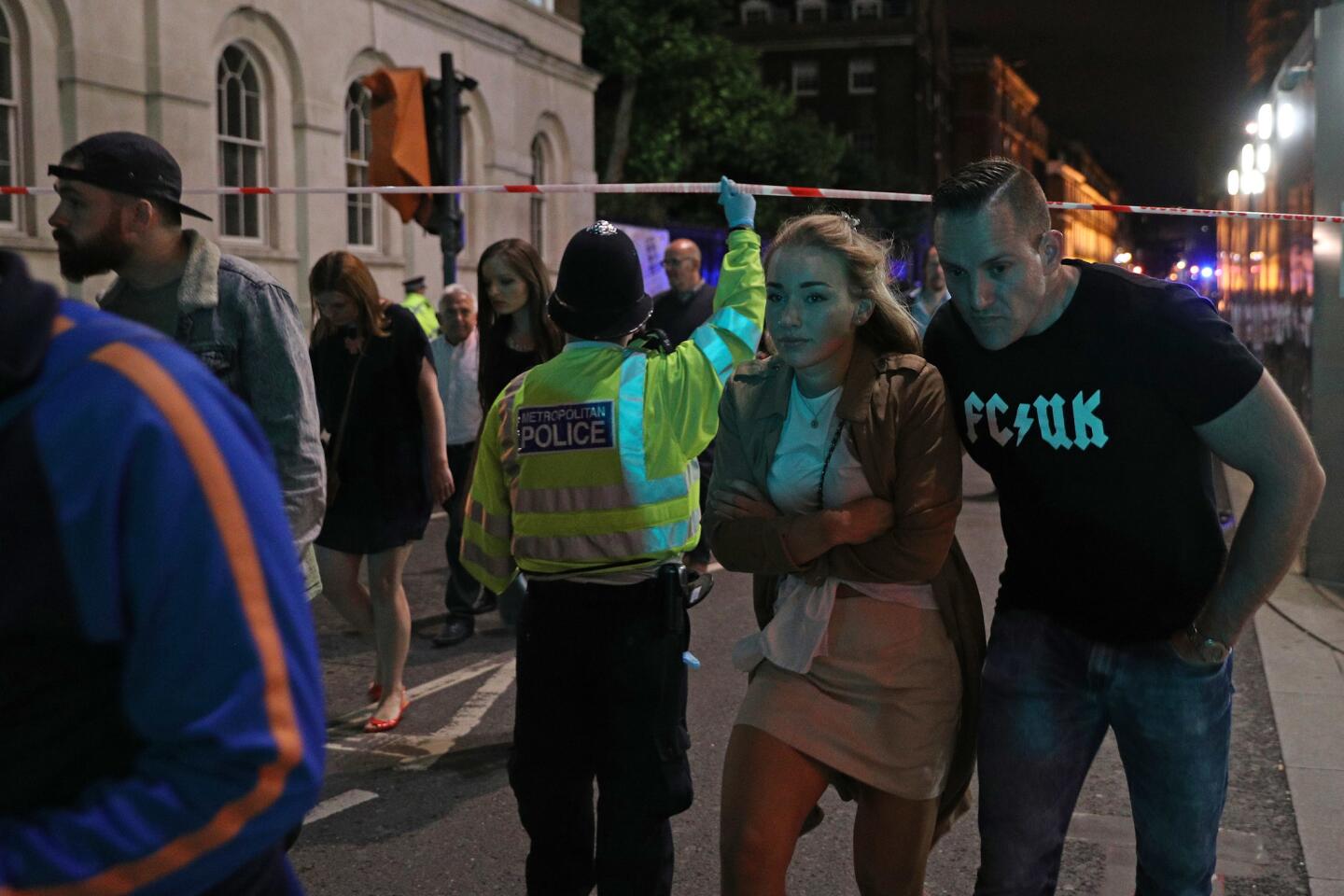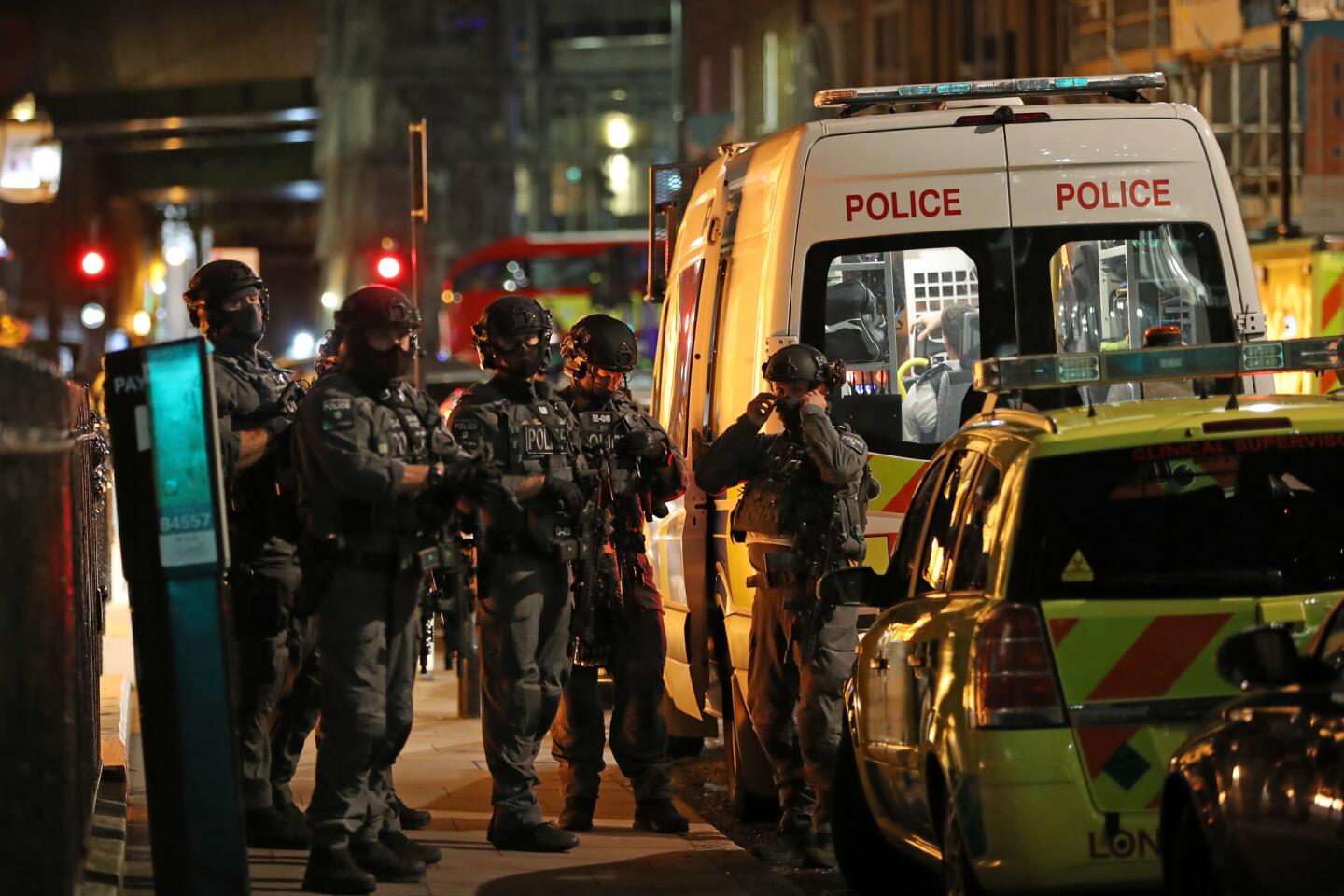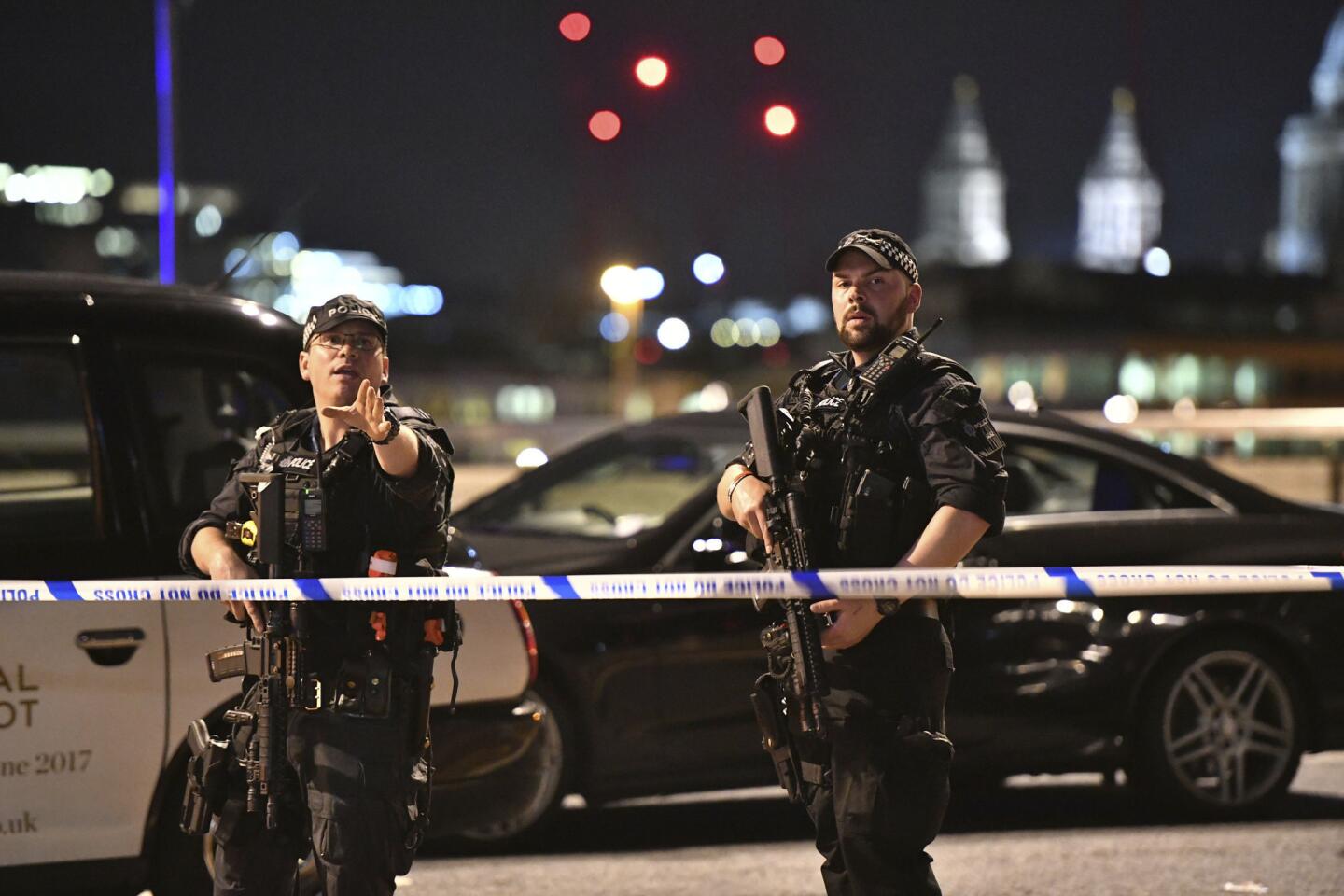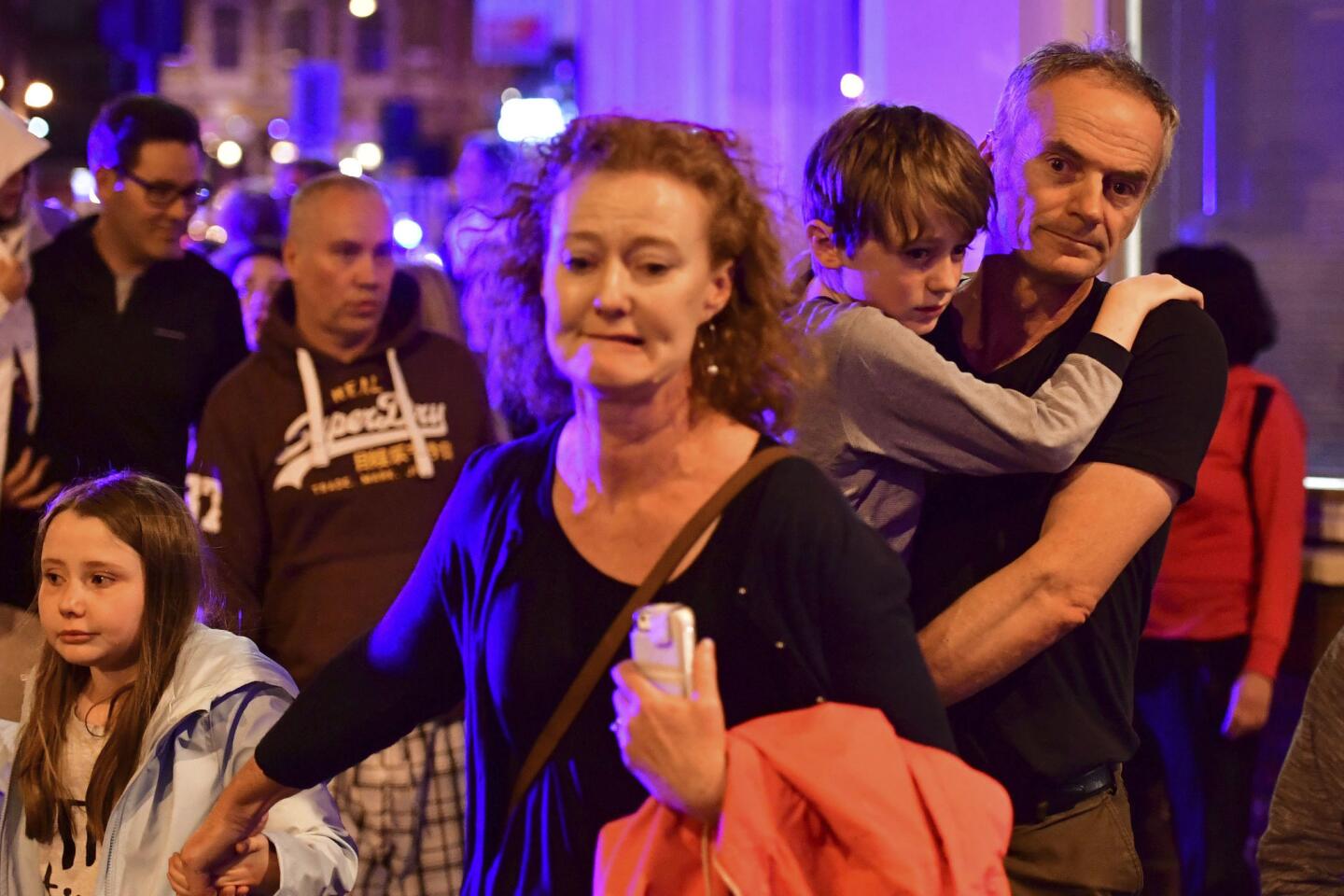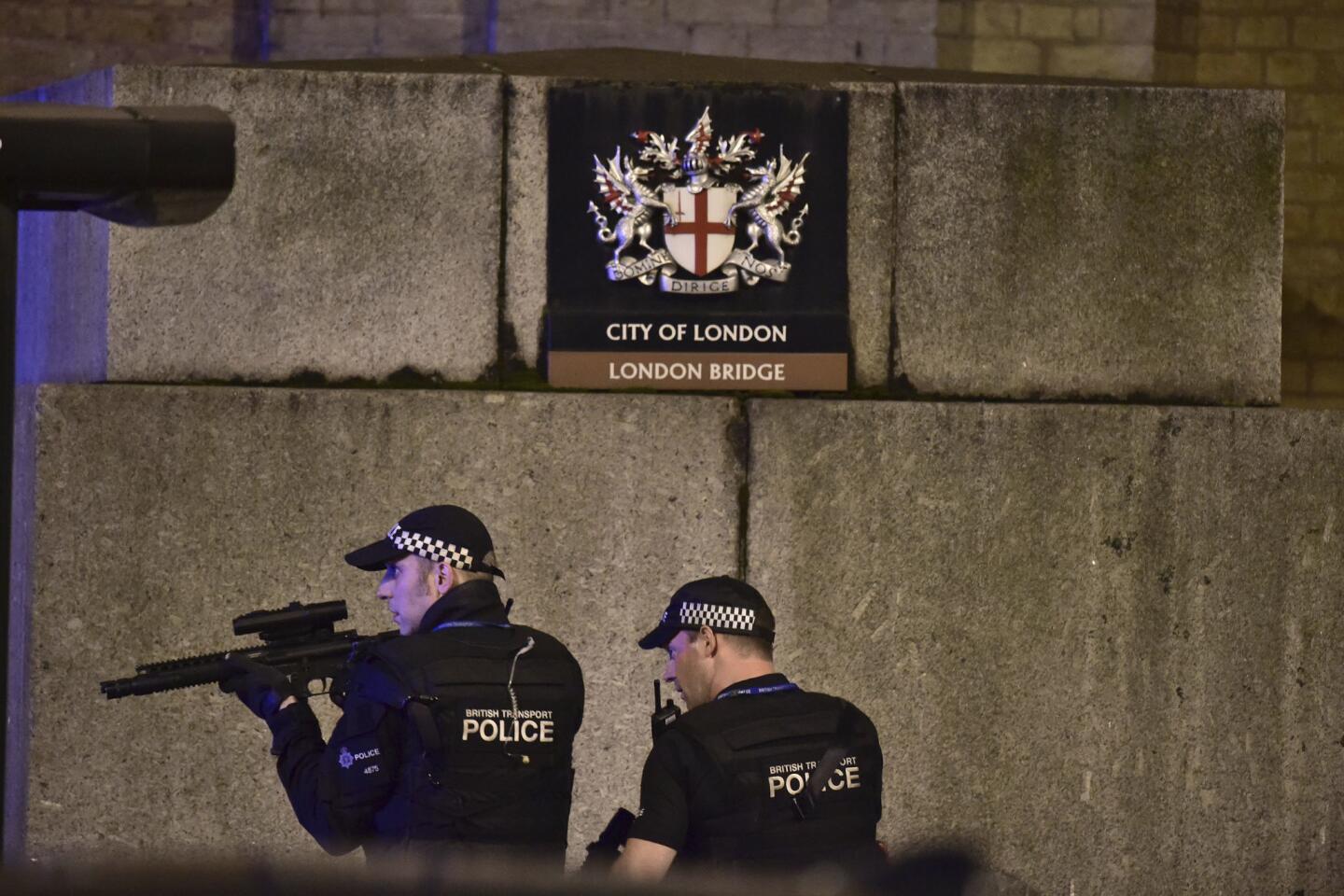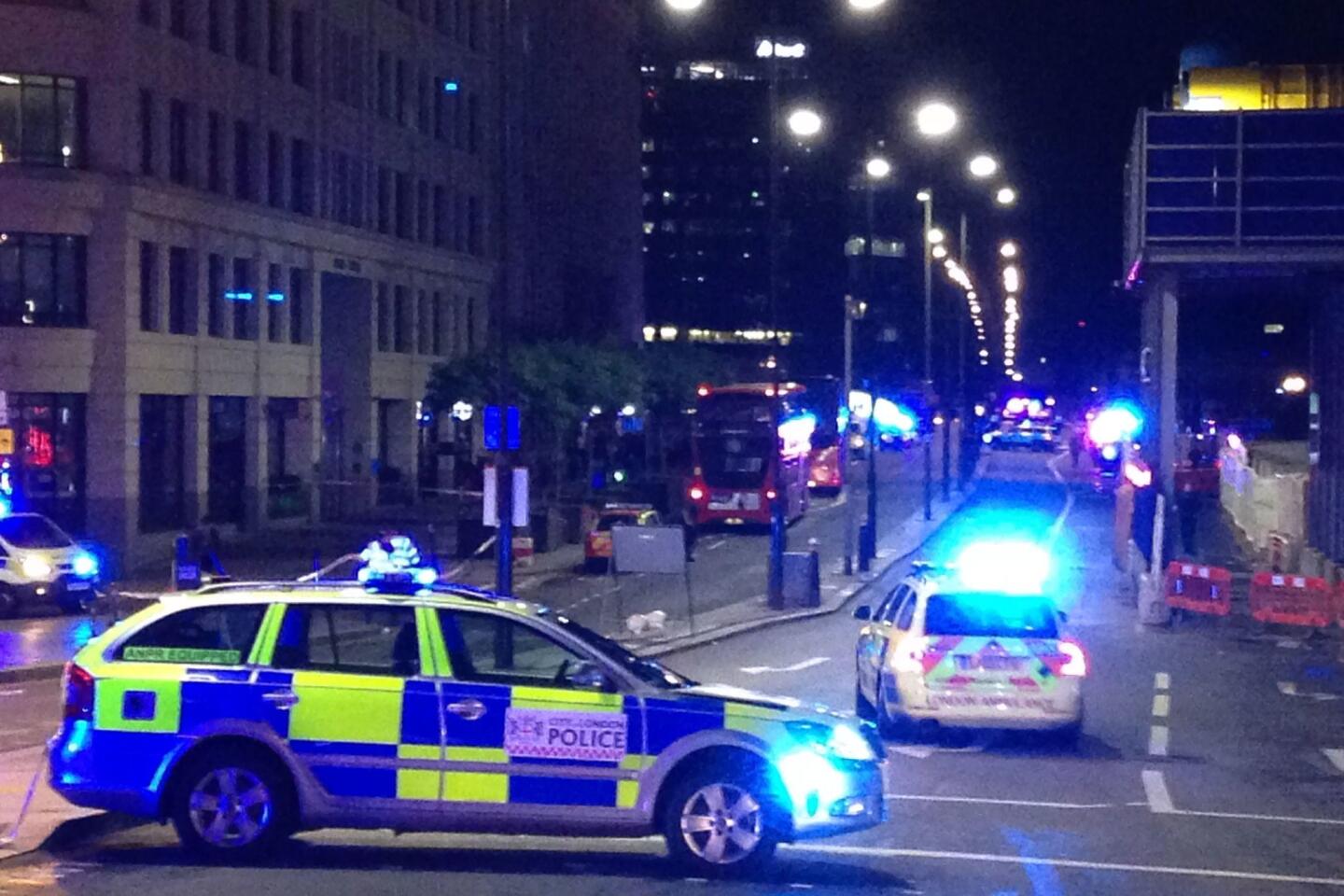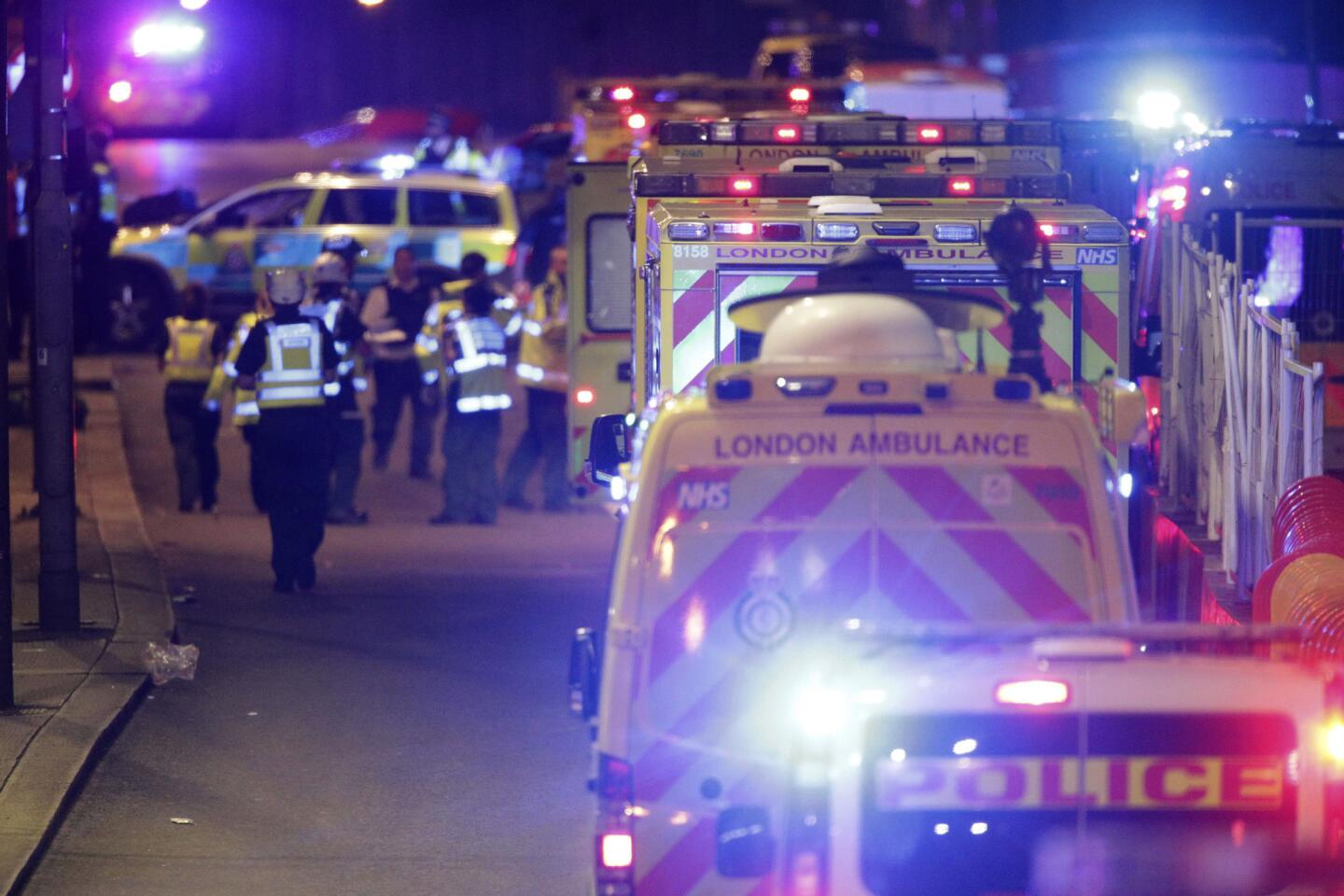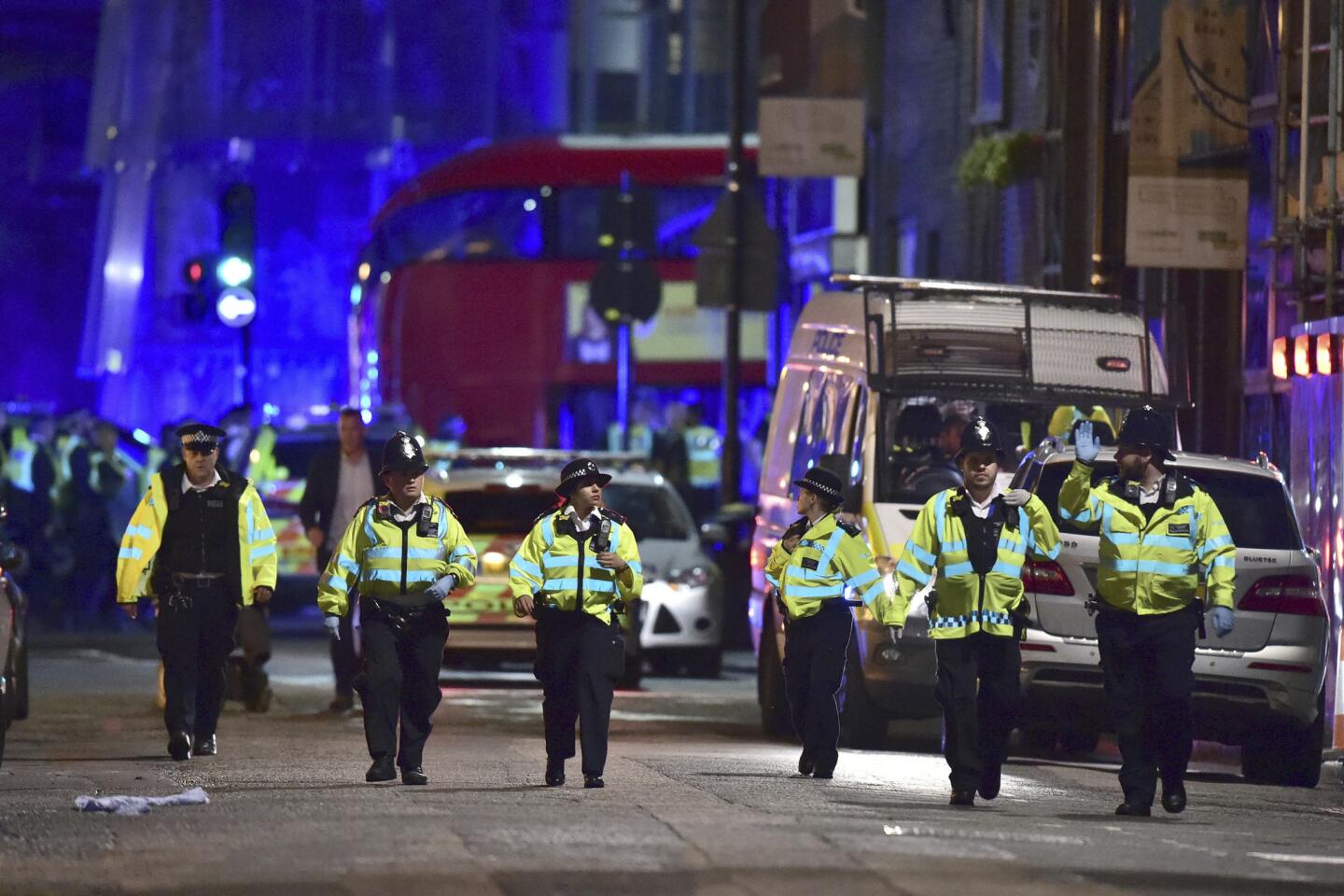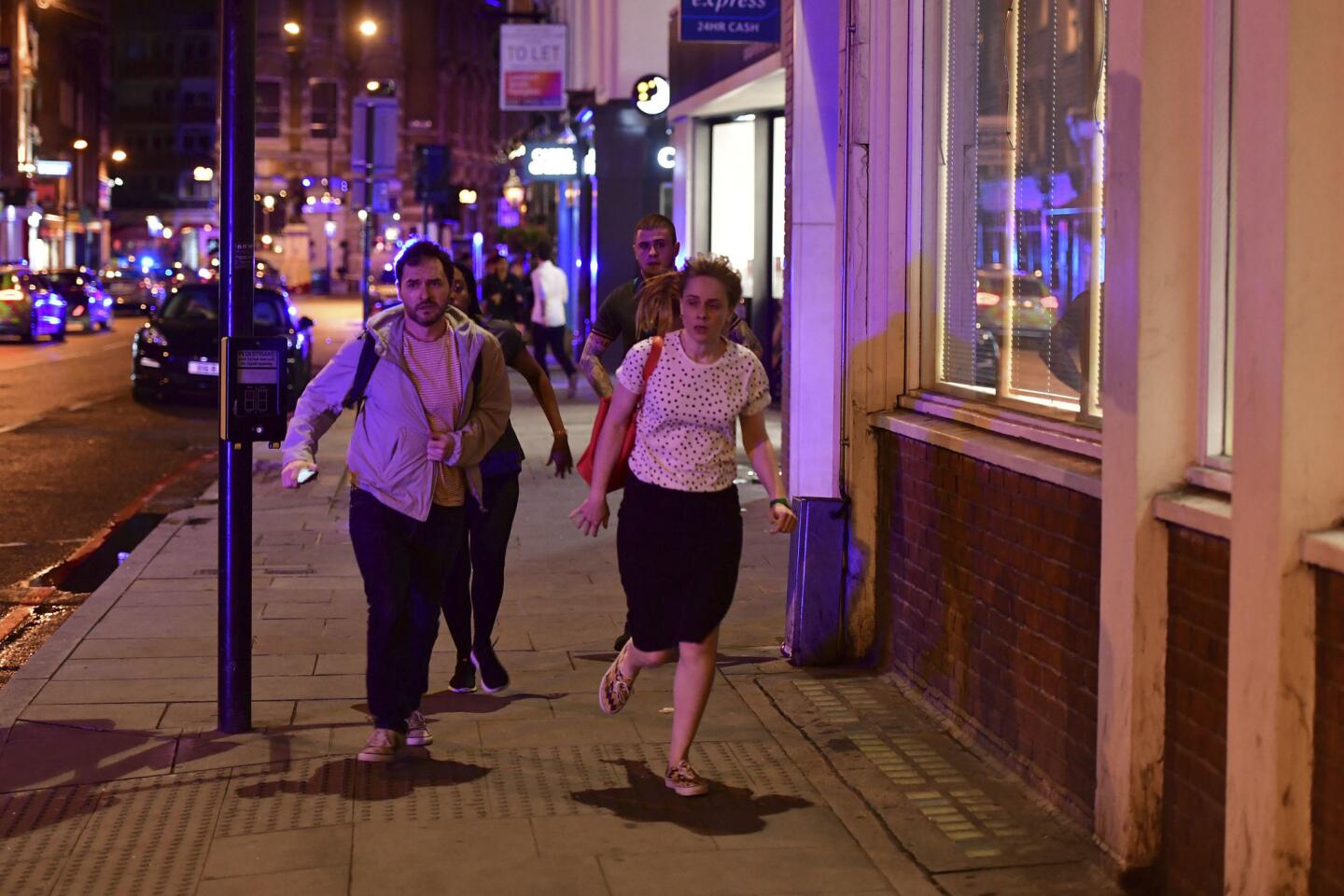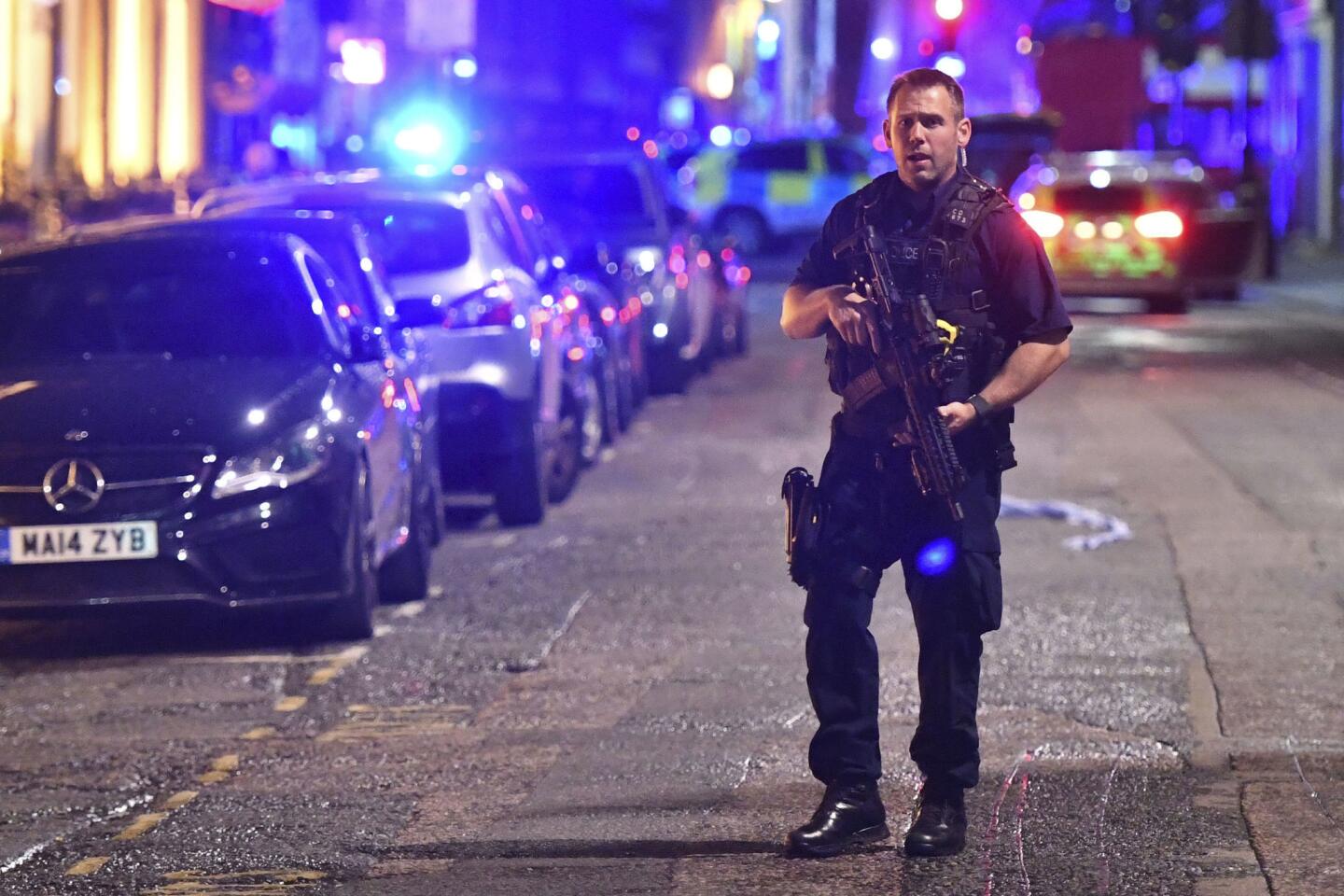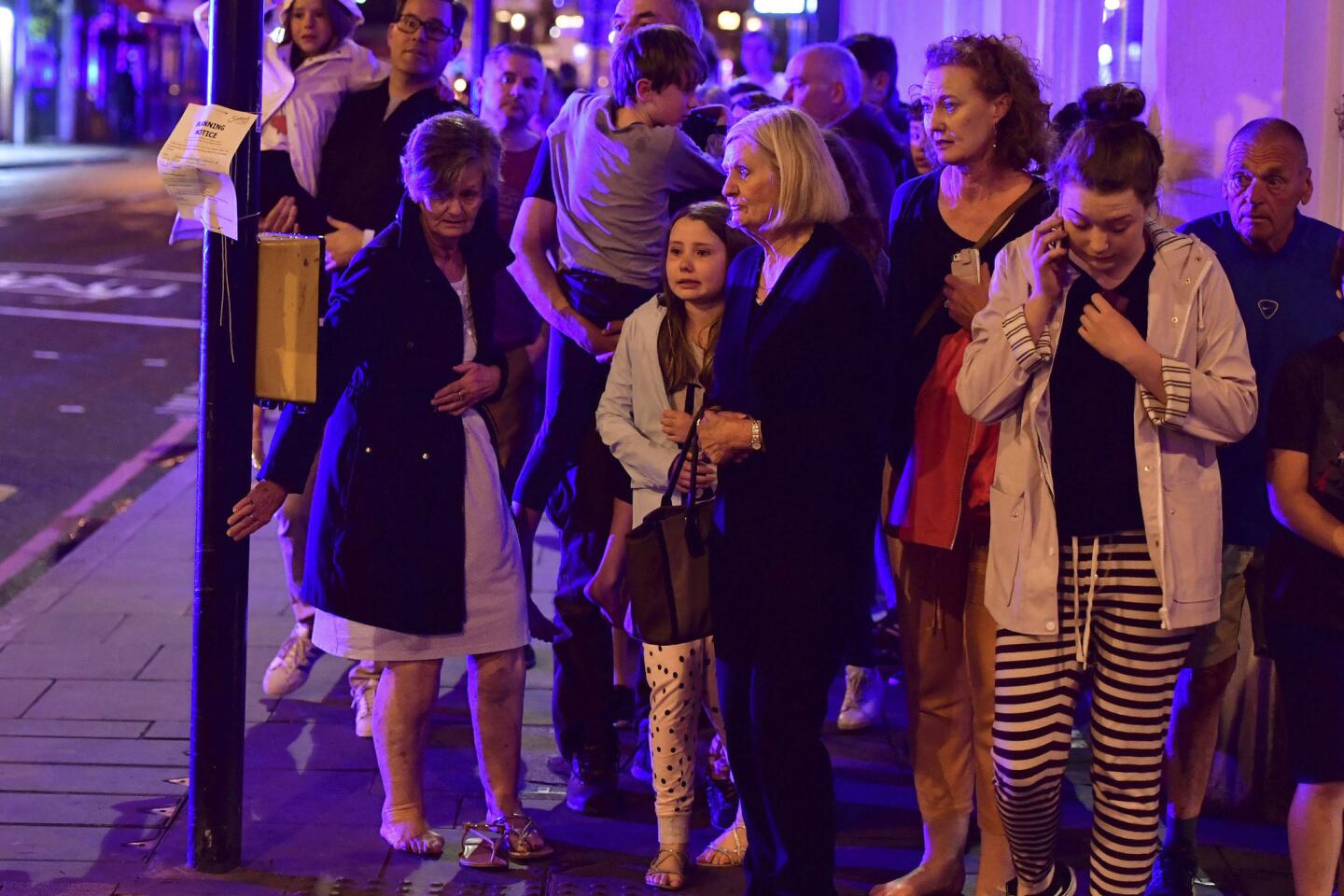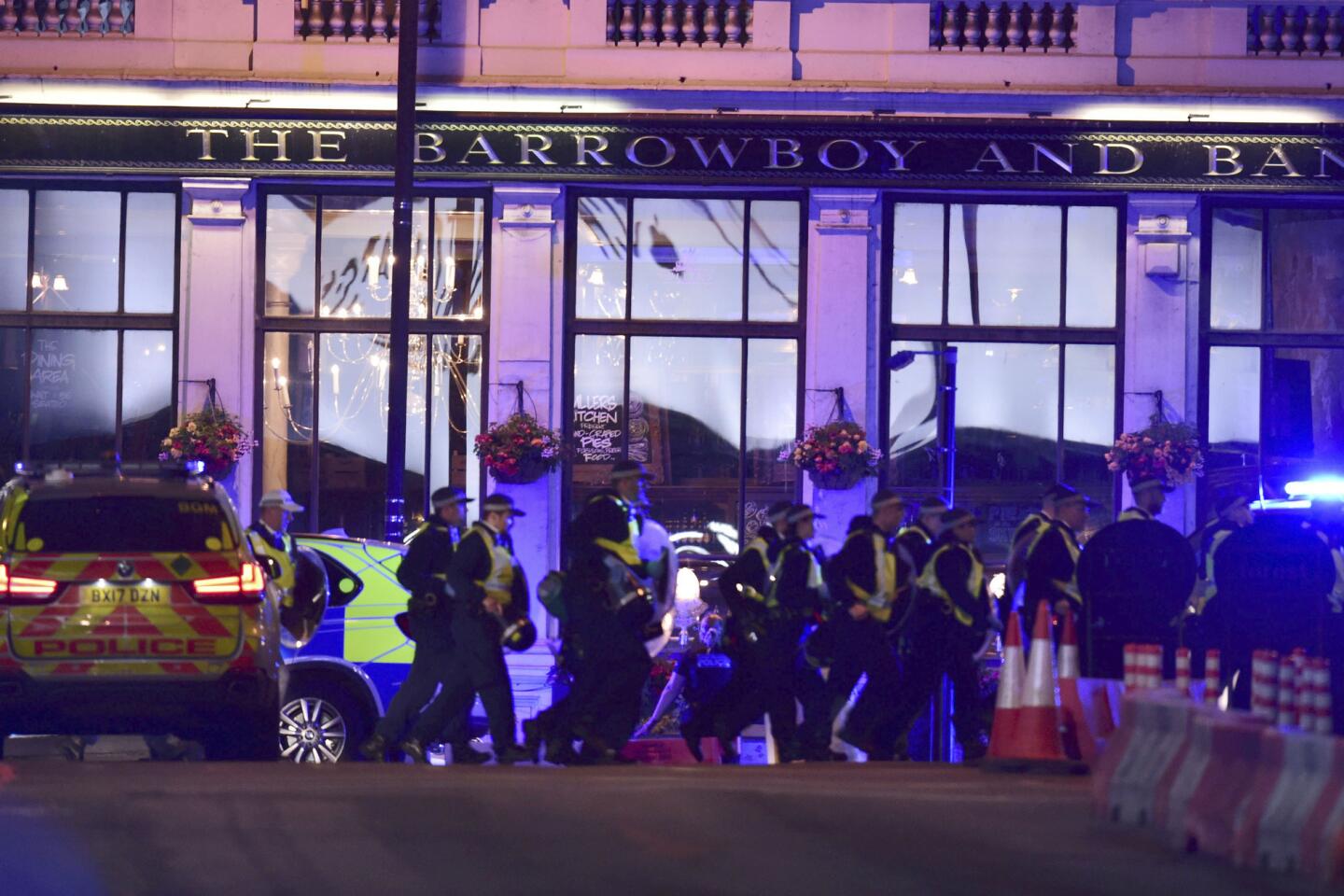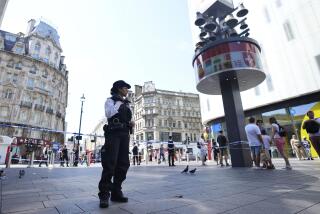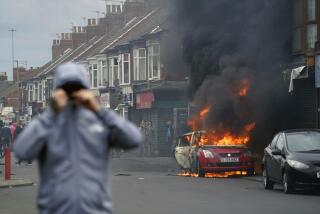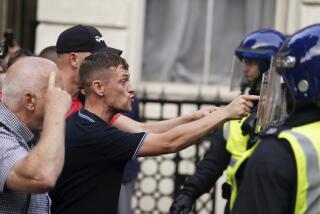‘You won’t break us. You won’t break us, ever.’ A defiant London carries on after latest attack

Islamic State has claimed responsibility for the London Bridge attack that killed 7. (June 5, 2017) (Sign up for our free video newsletter here http://bit.ly/2n6VKPR)
Reporting from LONDON — In one of the most cosmopolitan of world cities, resilience was the order of the day on Sunday.
Londoners expressed defiance and solidarity in the wake of a ramming-and-slashing attack reportedly claimed by Islamic State that killed seven people and injured dozens in a storied slice of the city, one immortalized in nursery rhyme, Elizabethan verse and history books.
British police reported 12 arrests in connection with the attack on London Bridge and Borough Market, a tangle of narrow streets beneath the bridge’s southern span.
Prime Minister Theresa May, facing an unexpectedly tough general election this week, called for a far-reaching reworking of Britain’s counter-terrorism strategy and heightened action to combat Islamist extremism.
The claim of responsibility came from the Islamic State-affiliated Amaq news agency, which said a “security detachment” from the group had carried out the attack. As is its usual practice, Amaq cited a security source in the group. But such claims do not always point to any actual degree of planning or coordination on the group’s part, sometimes serving merely as an endorsement of a strike believed to have been inspired by its ideology.
A Canadian woman was the first person to be identified as a victim of the attack.
Chrissy Archibald’s family described her as a “loving daughter and sister” from British Columbia who worked at a homeless shelter before moving to Europe to be with her fiance.
“She had room in her heart for everyone and believed strongly that every person was to be valued and respected,” the family’s statement said. “She would have had no understanding of the callous cruelty that caused her death.”
On Sunday, white-clad forensic technicians scoured for clues, and police in black body armor patrolled the scene of the assault, which began late Saturday when a rented white Renault van rammed pedestrians on the bridge and continued with a knife rampage by three attackers in the crowded nightlife district on the south bank of the River Thames.
Londoners of all creeds and visitors from across the globe flocked to the area — drawing as close as they could get behind police cordons — to lay flowers and express defiance amid their grief.
“It’s to show our solidarity,” said Chris Prentice, a 40-year-old British photographer who lives in the city. He was in jeans and stubble as he set down a bouquet. “It’s a message: You won’t break us. You won’t break us, ever.”
With the country still mourning a major assault less than two weeks ago, in the northern city of Manchester, London Mayor Sadiq Khan tweeted that “we will never be cowed by terrorism.”
Singer Ariana Grande, whose concert in Manchester was attacked on May 22, returned to headline a star-filled tribute to that city’s victims. The crowd of about 50,000 people cheered an opening exhortation from singer Marcus Mumford: “Let’s not be afraid.”
As the London assault unfolded late Saturday, some customers in pubs and restaurants scattered in panic — but others fought back by hurling bottles, beer mugs and even tables and chairs at the knife-wielding attackers, witnesses said. Police, whose response has been honed by two previous large-scale attacks over the last three months, shot the trio of attackers dead within eight minutes of the first distress calls.
In a country where police rarely draw their weapons, authorities acknowledged Sunday that a bystander had been wounded in the fusillade of gunfire — 50 bullets fired by eight officers — directed at the attackers. The civilian’s injuries were not life-threatening, police said.
President Trump, who had caused a stir the evening before when his initial reaction to the attack included a call to reinstitute his court-blocked travel ban, tweeted criticism Sunday morning of Khan, asserting — misleadingly — that the mayor had said there was “no reason to be alarmed!”
Khan on Sunday had in fact urged Londoners to be vigilant and not to be surprised or worried by an increased police presence in coming days. He told the public: “I’m reassured we are one of the safest global cities in the world.”
Britons responded with a stoicism that for many evoked the famous World War II slogan — when London was under relentless German bombardment — to “keep calm and carry on.”
“You will hear the older generation talking about Second World War and the spirit the city had at the time,” said Stephen Renaud, a retired postal worker, surveying the scene near police barricades. “I think the spirit still carries through today.”
With the investigation still in its early stages, May unleashed tough rhetoric against what she called “a single evil ideology of Islamist extremism” without linking a particular group or network to the latest strike.
“Enough is enough,” she said as expressions of sympathy and solidarity continued to pour in from around the world. At the Vatican, Pope Francis offered prayers for the victims at his weekly Sunday blessing.
In a televised statement from her official residence at 10 Downing St., where flags had been lowered to half-staff, the prime minister grimly cautioned that the attack marked a “new trend in the threat we face” — assaults in which methods and ideology echoed those of previous strikes.
“While the recent attacks are not connected by common networks, they are connected in one important sense. They are bound together by the single evil ideology of Islamist extremism that preaches hatred, sows division and promotes sectarianism,” said May, clad in a dark suit and peering into the cameras.
The identities of the attackers were not immediately disclosed. After the May 22 suicide bombing in Manchester, British officials were dismayed when details including a suicide bomber’s name were leaked prematurely, apparently by U.S. officials.
Some witnesses’ accounts, though, suggested an Islamist motive. A pubgoer, Gerard Vowls, told Sky TV that attackers shouted, “This is for Allah!”
Shortly after May spoke, London’s Metropolitan Police Service said officers from its counter-terrorism command had arrested a dozen people in the East London suburb of Barking “in connection with last night’s incidents in London Bridge and the Borough Market area.”
It said searches of “a number of addresses” in Barking were continuing. The BBC reported that several of those arrested were women.
The emergency services reported that 48 people had been taken to half a dozen hospitals across the city, with three dozen still hospitalized Sunday, some with critical injuries. Those hurt included an off-duty police officer and an on-duty member of the transport police, and a number of foreign citizens from countries that included Germany, France, Spain, New Zealand and Australia.
As in past attacks in other cities, including the truck rampage last summer in the French Riviera city of Nice, establishments and ordinary people opened their doors to those left stranded by disrupted transport in an area popular with visitors and locals alike.
Borough Market, with its warren of alleyways beneath and near London Bridge, is filled by day with famed specialty food stalls, and by night — particularly on a spring evening like Saturday — with patrons who flock to bars, clubs and eateries ranging from hole-in-the-wall dives to fine-dining establishments.
With Britain’s general election only four days away, the major parties called off campaign events on Sunday as a sign of respect. The far-right UK Independence Party, known for its anti-immigrant, anti-Muslim stance, said it would press ahead with campaigning — in order, it said, to send a message to terrorists.
Polls had initially indicated a heavy advantage for May’s Conservative Party over her principal Labor Party opponents heading into Thursday’s vote, but that lead had narrowed dramatically in recent weeks. The attack’s effect on voter sentiments remained unknown.
Home Secretary Amber Rudd said the country’s terrorist threat level would remain at “severe,” because no perpetrators were believed to be at large. The threat level had been raised to “critical,” the highest level, for some days after the Manchester attack.
Special correspondent Kirschbaum reported from London and staff writer King from Washington. Times staff writer Melissa Etehad in Los Angeles contributed to this report.
ALSO
Amid chaos in London, Trump makes case for travel ban
Who is Nigel Farage? British politician reported to be ‘person of interest’ in Trump-Russia probe
At least 22 dead, dozens injured in suicide bombing at Ariana Grande concert in England
UPDATES:
5:12 p.m.: This article has been updated with the identity of the Canadian victim and other details.
3:20 p.m.: This article has been updated with the claim that Islamic State carried out the attack.
11:30 a.m.: This article has been updated with Manchester concert beginning, added quotes from Khan, other details.
9:05 a.m.: This article has been updated with police saying one bystander was wounded by police gunfire.
8:40 a.m.: This article has been updated with quotes from the scene and with Canada saying one victim was Canadian.
7:35 a.m.: The story has been updated throughout with staff reporting.
5:30 a.m.: This article was updated with the 12 arrests.
3:40 a.m.: This story was updated with more quotes from May.
2:10 a.m.: Updated with the emergency cabinet session, background and quotes.
This article was first published at 1:45 a.m.
More to Read
Sign up for Essential California
The most important California stories and recommendations in your inbox every morning.
You may occasionally receive promotional content from the Los Angeles Times.
